#recent publications on Alexander the Great and Philip
Note
Hi Dr. Reames! I wondered if you’d read ‘Philip and Alexander: Kings and Conquerers’ by Adrian Goldsworthy, or if you had any opinion on it? I’m thinking about buying it but I wasn’t too sure about it and thought I’d ask you! :)
I have not read it, no, so I can't tell you much about it.
Goldsworthy is a respected military historian, but really a Romanist. That's part of why I've not hurried to read the book. Every year a BOATload of articles by specialists comes out, so my reading time tends to go to that, to keep up with what my colleagues are theorizing. I just reviewed the Pownall/Asirvatham/Muller collection The Courts of Philip & Alexander the Great (from DeGruyter). I recommend it. There are a couple oddball papers in it, but that's true of most conference proceedings. Quite a few important articles in that collection, if the court is your thing. :-)
But it is, of course, ridiculously expensive. So get it from a library, via ILL (interlibrary loan).
If you want a more introductory book, and more reasonably priced, I'd recommend Ed Anson's recent one Philip II: Father of Alexander the Great. Themes and Issues. It's really meant as a textbook, but it's one of the better recent books on ol' Phil. And (unlike Goldsworthy) Anson is a Macedonian specialist, especially on Philip.
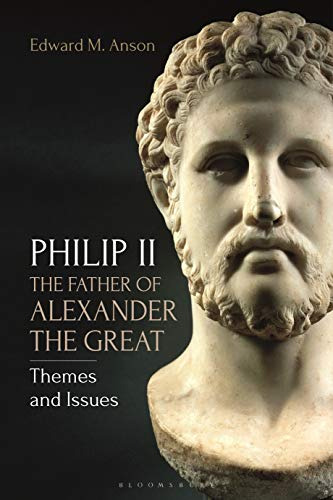
So I'd put my money into Anson's book, not Goldsworthy's. the latter may be perfectly fine--probably is--but also probably won't reflect the most recent work in the field, which Ed's will. (I still think he's wrong about when the Pezhetairoi came to be applied to the whole phalanx, but that's a specialists' quarrel, ha. Ed's scholarship is dead solid.)
#Adrian Goldsworthy#Edward Anson#recent publications on Alexander the Great and Philip#Frances Pownall#Alexander the Great#Philip II
5 notes
·
View notes
Text
The 10 not-to-miss Archaeological Sites in Greece
In the aftermath of the fire that passed right through the archaeological site of Mycenae (fortunately the site wasn’t irreparably destroyed, it was mostly smoked) here are 10 of the most important / standard archaeological sites to see in Greece. These aren’t even a tenth of the sites Greece has to offer, neither are recently discovered important sites that have yet to open to the public included in this list, but this is the list of the places to get started from, either because they are very informative or because they typically attract the majority of tourists.
1. Acropolis, Athens
The standard first stop of every tourist arriving in Greece and yet, Greeks frequently fall into two categories; those who see it every day and those who have yet to visit it. On the Acropolis (which means Edge of the City) one can see the Propylaea (the monumental gateway), the Temple of Nike, the Erechtheion with the Caryatids, which is a temple dedicated to both Athena and Poseidon and, lastly, the Parthenon which is the most important landmark of Greece. Parthenon was the temple dedicated to Athena, the patron Goddess of Athens. A walk to the Acropolis should be ideally combined with a visit to the New Acropolis Museum nearby.
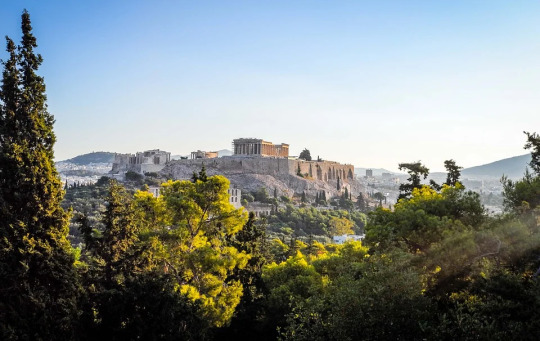
2. Delphi, Phocis
The archaeological site of Delphi is located at Phocis, nestled in Mount Parnassus. It is a shrine dedicated mostly to Apollo and this was also where the most famous oracle of antiquity functioned. Nowadays, the visitor can see the ruins of Apollo’s Temple, treasuries from various cities, the most important one being that of Athens, the ancient theater, the ancient gymnasium, the Castalian spring and the Tholos of Athena Pronaia. The exploration is not complete without a visit to the Museum of Delphi.
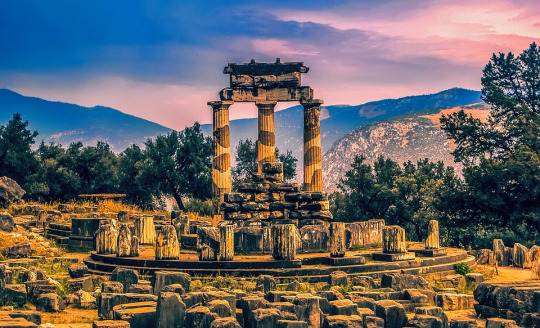
3. Ancient Olympia, Elis
This is where the Olympic Games were founded and took place. Nowadays, it is still the location where the Olympic Flame is lit every four years. Afterwards, the Olympic Flame travels from Olympia around Greece, then it arrives to the Panathenaic Stadium in Athens and from there it travels to the previous and then the next host city of the Olympic Games. Visitors there can see the ruins of the temple of Zeus, the temple of Hera, the Stadium, the Palaestra (the wrestling school) and much more. The beautiful statues have been removed from the site and are exhibited in the Museum of Olympia. There you can also see the famous Nike of Paionios and Hermes of Praxiteles.
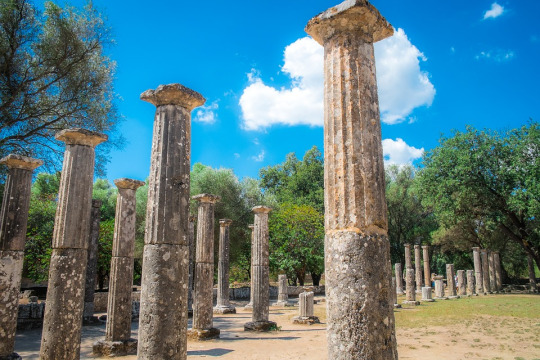
4. Knossos, Heraklion
Knossos was the capital of the Minoan civilization (3000 - 1400 BC) in Crete. The palace of Knossos is associated with numerous Greek myths, such as those of Theseus and the Minotaur and Daedalus and Icarus. The site is notable for its exquisite frescoes that are both beautiful and very informative about the era. The throne hall and the storage rooms are impressive, especially if you consider that this is the first throne room of Europe.
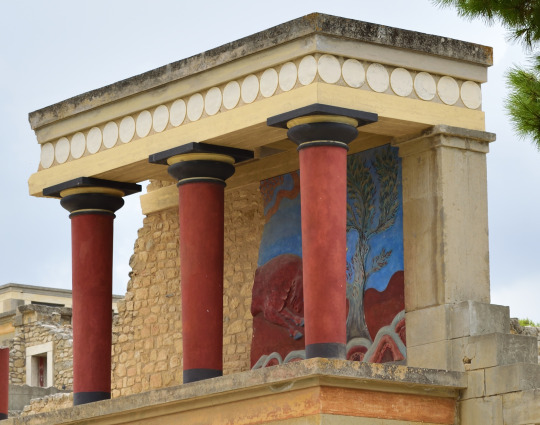
5. Mycenae, Argolis
Let’s go to the smoked impressive sweetie.The Mycenean civilization flourished right after the Minoan and its base was Mycenae, in mainland Greece. Its most notable king was Agamemnon, who made his way into the Homeric epics and the Greek mythology. At Mycenae visitors can see the Lion Gate, the impressive royal tholos tombs, the king’s halls and much more.
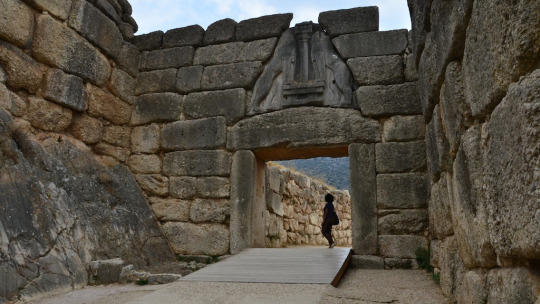
6. Vergina, Imathia
While Alexander the Great’s tomb remains a world mystery, his father’s King Philip fortunately is not (99% at least). In Vergina visitors can see the unplundered royal tombs and the palace as well as the artifacts of great importance found in them.

7. Temple of Poseidon, Cape Sounion
The temple of Poseidon attracts many thousands of visitors annually. Built on the edge of the cliff above the sea, it creates idyllic conditions for photographs, especially at night with full moon.

8. Messini, Messenia
Messini in Peloponnese is one of the best preserved ancient cities in Greece. One can clearly see the gymnasium, the theater, the stadium, one of the two city gates, the fountain of Arsinoe and many more structures / buildings. Just next to the site is the archaeological museum with all the findings that complete the visitor’s impression of the place.
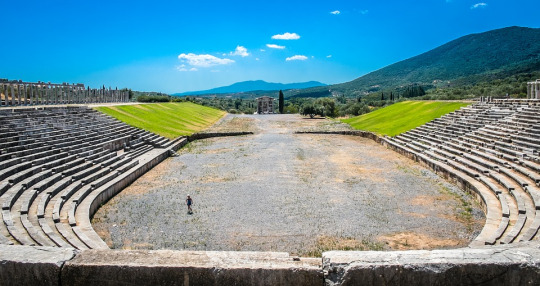
9. Lindos, Rhodes island
On a hill next to the sea in the south of Rhodes you can visit the Acropolis of Ancient Lindos and the temple of Lindia Athena. Much later in time, a medieval fortress was built around the ancient acropolis, making the site even prettier.

10. Epidaurus, Argolis
The most famous theater of antiquity and one of the best preserved. It’s worth a visit not just for the archaeological site itself, but also for its wondrous acoustics. Besides, the theater still operates and certain theatrical plays take place there, where you can attend and feel like you belong to an ancient audience.

#greece#europe#ancient greece#athens#acropolis#sounion#attica#delphi#central greece#epidaurus#messini#ancient olympia#mycenae#peloponnese#crete#knossos#lindos#dodecanese#macedonia#greek culture
286 notes
·
View notes
Text
Anonymous asked: As a staunch royalist I would be interested to hear your views about Prince Harry and Meghan Markle deciding to quit the British royal family. Did they do the right thing or are they just being selfish and ‘woke’? Does this ‘Megxit’ the British royal family is in crisis and its future looks bleak by this act of betrayal to the Queen?
Short answer:

I have been avoiding answering this question precisely because I became tired of hearing about it around the family dinner table or with friends when I visited England recently or now with French friends here in Paris who can’t fathom what is going on. But too many have asked about this in my blog inbox.
I don’t mean to sound so dismissive but to me it’s just a passing storm in a tea cup rather than some cataclysmic crisis of the British monarchy. Everyone should stop take a deep breath.

After the joint press statement by Prince Harry and the Duchess of Sussex statement came out on 8 January 2020 it set in motion the usual hilarious pastiche of Cold War Kremlinology by the British press. So at any one time you had sensationalist and sanctimonious headlines such as the fury of the palace press knew no bounds. How dare they? The Queen humiliated. The palace insulted. And so on and so on.
Every newspaper editor knows there is a yawning gulf between the “public interest” and what interests the public. By any standards, Harry and Meghan have become huge celebrities. They were idolised, their charities blessed, their presence craved. Unfortunately such is human nature, the public invest something of themselves in their heroes. They see in their idols a reflection of their own fantasies and delights, hopes and fears. When they witness celebrities traumatised it can be unsettling, as the death of Princess Diana vividly showed. People cried in the street.
As Harry knew from his mother’s tragic experience, all this is par for the royal course. The British newspapers - or rather those peddling in royal tittle tattle such as the Sun, Mirror, and the Daily Mail - have a habit of erecting pedestals one minute and then the next minute they enjoy destroying the icon in the name of the public interest. Andrew’s former wife, Sarah Ferguson, was appallingly treated. So at times were Princess Anne, and Prince Edward’s wife, Sophie. Press attention should be water off the royal duck’s back. Prince Philip’s advice was reportedly: “Don’t read the bloody papers.”
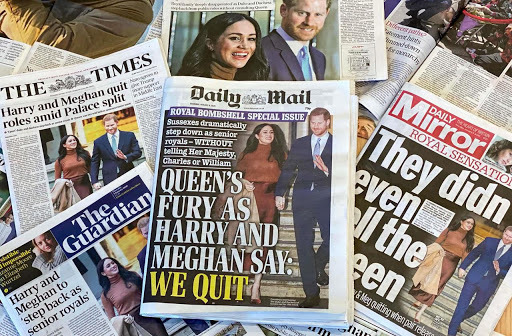
While Harry was brought up surrounded by the furies of the celebrity media, Meghan’s career was the opposite. In her profession as a known actor (albeit a middling TV actor at that), image is an artifice, daily crafted and laundered by publicists.
This does not work with British royalty, which comes with its own carefully minted image attached. Its rituals are those of mind-numbing deference. It has no accountability. The only mirror it has is the press. The tabloids are the price that must be paid for adulation. They honour no discretion and have no sense of fairness. The press is a memento mori, whispering into the victor’s ear that he – or she – is only mortal. And gosh do they take that role on with sanctimonious glee.
To be daily compared to the Duchess of Cambridge, from an utterly different social background, must have been intolerable for Meghan: the dress comparisons, the stuffiness of the court, its hyper-caution and obsession with precedence and procedure, added to the impossibility of contact with ordinary people. As a self-made millionaire already perhaps she wanted to be more than a mere civil servant in a tiara. Perhaps it proved too much but who really knows? But then I don’t know what else she expected when she decided to marry into the British royal family.

Similarly one can only speculate how much it was really Prince Harry who wanted to drop out riding on the royal carousel as he has been since birth. Regardless of who he married perhaps this was always the plan. His loathing of the British press and paparazzi is well known - he still blames them for his mother’s tragic death in Paris. It’s well known the paparazzi have tried to catch him out in manufactured scandals as he grew up. He has refreshingly come clean and has talked about how he still goes to therapy over his mother’s death. It’s no wonder he would ever subject a future wife and especially a child to the level of press intrusion that he had endured.
Prince Harry is nobody’s fool. I won’t say a bad word about him because - unlike previous and present royals with the exception of his grandfather, Prince Philip, who did active naval service during the Second World War and his uncle Prince Andrew, who as a naval officer flew Sea King helicopters during the Falklands War - he didn’t play the ceremonial toy soldier. After Eton he worked his arse off to get through Sandhurst and got commissioned with the Blues and Royals regiment. Upon the outbreak of war in Iraq, he was alleged to have said around 2006, “There's no way I'm going to put myself through Sandhurst and then sit on my arse back home while my boys are out fighting for their country.”
As it was the military chiefs got cold feet and pulled him out. But he did see active service with the British forces in Afghanistan with two tours. By all accounts he acquitted himself very well as a Forward Air Controller in Helmand Province and later as a co-pilot and gunner on Apache helicopters. He was widely respected and accepted by rank and file because he was down to earth and never asked for special treatment. He wasn’t a typical ‘Rupert’ - a squaddie’s nickname given to British army officers who typically came from privileged aristocratic backgrounds but were also ‘nice but dim witted’.
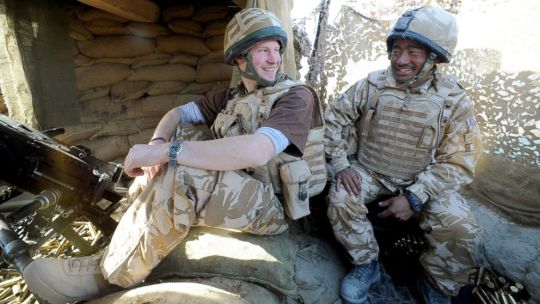
Overall I sympathise that the Sussexes’ predicament was clearly desperate, and it is perhaps to their credit that they have brought it to a head early and not let it drag on. I feel they are sincere in their reasons to ’step back’ from the royal family and frenzied media circus around it. The fact they want to pay their own way and pay back any outstanding sums back to the royal household is perhaps a sign of that sincerity.
Instead some sections of the British press rolled out the tired old trope of the parallels between the Duke of Sussex and his great-great uncle, the Duke of Windsor, are overwhelming. Once again, a dashing, sporting, ex-military prince leaves royal life for the love of an American divorcée. This is exactly the opposite of what Edward and Mrs Wallace Simpson did when they bit the hand that fed them. They took money to support their lavish lifestyle in exile from the Queen and all the while took every opportunity to snark the fledgling young Queen from their own alternative royal court in Paris. Harry no doubt loves his grandmother and his family and would try not sully the Windsor name.
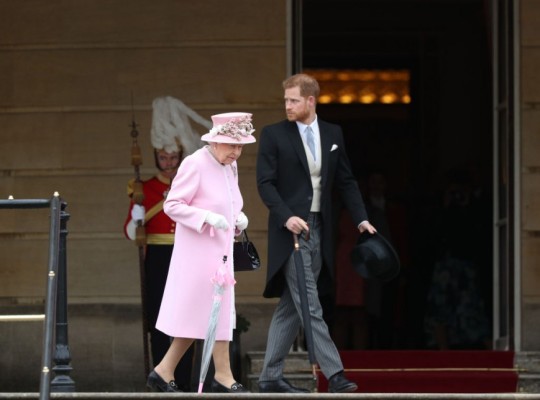
Where I would be critical a little is in their handling of it which appears naive at best and inept at worst. I suspect - since verified - that having a transatlantic split of publicists, and in addition didn’t understand the full import of how this would play out, would inevitably drop the ball. But I would extend a finger of blame to the palace courtiers who were involved in their own games of intrigue with a whispering campaign to selected journalists of the press. Indeed multiple newspapers, including the Daily Telegraph in the UK, reported that the queen was “disappointed” with the surprise announcement, and had asked the Sussexes to hold off on issuing a public statement. When The gossip mongering Sun newspaper published a front-page story that the couple was contemplating a move to Canada, the Sussexes pushed the button on their statement.
I do think the Sussexes and their advisors were fooling themselves into thinking that they could have their cake and eat it - in other words keep the royal titles but cut back on the public and ceremonial duties. The blunt truth is if you want to stay on the books, you do so by the leave of the firm and its boss i.e. The Queen. The contract is for life. If not, you resign. There is no half in and half out. This seems to have been the gist of the family only summit at Sandringham in January 2020, with media attention worthy of the Treaty of Versailles.

I am frankly surprised how worked up people are about this. Cut out the white noise and the picture is more prosaic.
The first point is that when all is said and done, none of this drama really matters. Politically, constitutionally, it is an irrelevance. Harry, at number six, is not seriously in line to the throne. The British monarchy has long shown itself immune to crisis; indeed I wonder sometimes if it welcomes crises as implying continued importance. The divorce and death of Princess Diana were awfully tragic, as was the very public shaming of Prince Andrew and his questionable friendship with billionaire paedophile Jeffrey Epstein. But how Harry leads his life is between himself, his wife and his father, Prince Charles. That is the point of heredity. It is immune to character, as it is to merit.
The second point is we should remember that other European royal families, of the same constitutional status as Britain, have been down sizing for many years now. These royal families balanced privacy and discretion whilst holding down ordinary professions. The King of the Netherlands, Willem-Alexander, is still an airline pilot. He occasionally flies KLM jets, safe in the knowledge that few people recognise him. In 2001 Prince Haakon, heir to the Norwegian throne, married a single mother with a drug-fuelled past. Despite some controversy, he survived incognito.

The King of Sweden, Carl XVI Gustaf, has reigned for 46 inconspicuous years as a nine-to-five job, his family merged into the Swedish bourgeoisie. The Crown Princess, Victoria, works intermittently for the UN. The King of Spain, Felipe VI, may have taken after his philandering father, Juan Carlos, but he became king without fuss on his father’s retirement in 2014. None of these “houses” has an extended state-subsidised royal family. None has grown unstable as a result.
There is no doubt that the exploitation of the British royal family celebrity by palace courtiers as PR handlers has worked. The royal family recognises that truth for itself when HRH King George VI famously quipped, “We are not a family, we are a firm”. The Queen is regularly cited as central to “UK plc” and to tourism. The British people remain overwhelmingly in favour of retaining monarchy as the focus of their patriotism, even during the wobble over Diana’s death. Republicanism is dead. The last ostentatious republican, the Fife MP Willie Hamilton, left parliament in 1987. If Scotland ever went independent it would almost certainly retain the Queen as head of state.
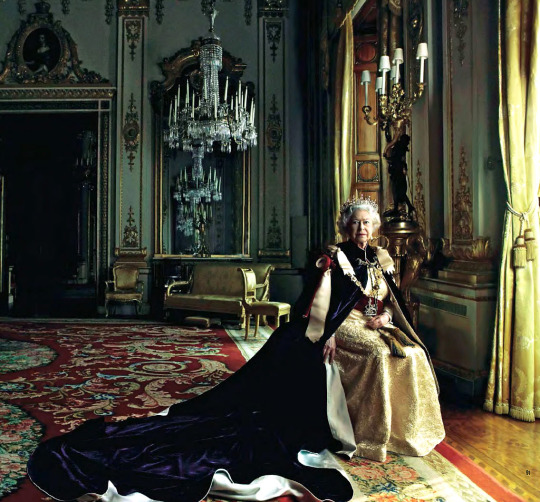
As for how royalty behaves, a constitutional monarchy should be beyond all controversy. As the great political and constitutional commentator (and founder of the Economist magazine) Walter Bagehot put it, “the monarch should be a dignified rather than efficient element of the constitution”. In other words, the monarchy as personified in its reigning king or queen can represent the whole nation in an emotionally satisfying way - everything else is but pure embellishment.
The Queen must be a glorious anthropomorphism of the nation as a whole. If she has opinions, she keeps them to herself - much to her credit. The contrast is clear with countries where state headship is combined with an elected executive presidency. The state risks being tainted by partisanship: witness the embarrassment many Americans feel at having their national loyalty identified with any president based on divided partisan feelings e.g. from FDR to Obama and Nixon to Trump.
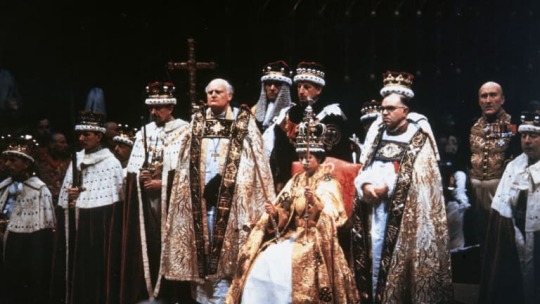
A rare occasion when the monarch might overstep the mark was conjectured by Mike Bartlett in his ingenious play, King Charles III, in 2014. It was based on the present Prince of Wales as king, refusing formally to sign a bill censoring the press (good on him). In the resulting crisis, William and Kate engineer Charles’s abdication, while the tearaway Harry takes up with a republican girlfriend. It was not wholly implausible. When Belgium faced a similar crisis over King Baudouin’s refusal to sign an abortion bill in 1990, he was allowed to abdicate for a day.
How the monarchy conducts itself is not wholly irrelevant. It is part of the collective context in which the nation’s politics are enacted. It represents tradition and upholds precedent. It sets boundaries and dictates a courtesy in the conduct of public affairs - however often that courtesy is infringed. What outsiders forget (especially our American friends) is that the British political system is gloriously resilient, as the past three years of Brexit hell have shown. It can tolerate the odd eccentricity, such as the blatant purchase of parliamentary seats in the House of Lords. But the question is how far such eccentricity can extend.
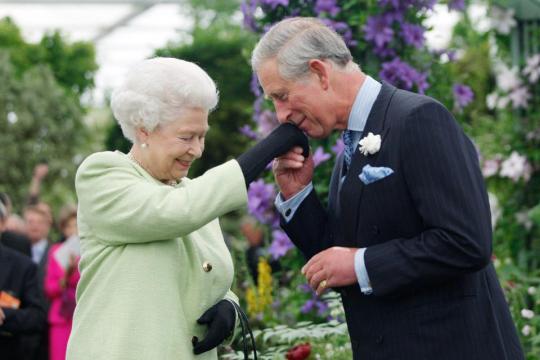
The present heir to the throne, Prince Charles, is deft at stepping mildly out of line. His views on architecture, health and the environment are not overtly partisan. But it does not matter as he is no more “powerful” than a newspaper or television commentator. His influence is that of celebrity. I would rather have the heir to throne engage intelligently in public debate than arrogantly indulge in the sordid sexual antics of his younger brother, Andrew.
For all his perceived faults, Prince Charles knows his limits. To expect such controlled nuances in the constitutional mystique of royalty to apply to an ever larger family has always been an accident waiting to happen. More prescient is the fact that the current system will impose the same disciplines and direct the same public exposure on an ever widening array of royal offspring as the years go by. I feel genuine sympathy for the royal children. Most British minors have their faces blanked out on camera, but not royal ones. They are sentenced to be recognised for life.
As a nation then we are extremely fortunate that Prince Harry is no more militant than in defence of the planet, wild animals and injured military veterans - all worthy causes if we are honest to admit it. Full disclosure: as an ex-veteran, I do give charitable donations to Invictus Games Foundation, the multi-sports event put on for wounded, injured or sick armed services personnel and their associated veterans. Prince Harry was instrumental in founding the Invictus Games in 2014 on his own initiative so that we never forget the courage and sacrifice of our military veterans.

What is already clear is that the Sussexes intend forthwith to redraw the lines of engagement with the press. They are opting out of the Royal Rota, the arrangement whereby, for decades, the royals have given access to a pool reporter from the national papers; instead, they will invite coverage from personally selected media outlets and will use their own social-media accounts, especially Instagram, to communicate directly with the public. Having railed against the media’s commodification of his wife, Prince Harry now seems prepared to take its commodification into his own hands: it was reported in January 2020 that he and the Duchess have lately submitted a trademark application for hundreds of items, from clothing to printed items, that may be issued with the couple’s personal brand, Sussex Royal.
This step is unfortunate and unedifying. To my mind, Sussex is a title, not a brand name. It is no more Harry and Meghan’s to exploit than Buckingham Palace is the Queen’s to sell off. Even if they distance themselves from the monarchy by being financially independent (as well as disowning their titles) by pursuing other commercial opportunities it only takes one scandal - e.g. a goods with their brand made from sweat shop labour or some other unforeseen PR disaster - to reflect badly on the Queen and the British monarchy solely because of Harry’s proximity to the throne. Harry may not be a Prince but he is a Windsor.
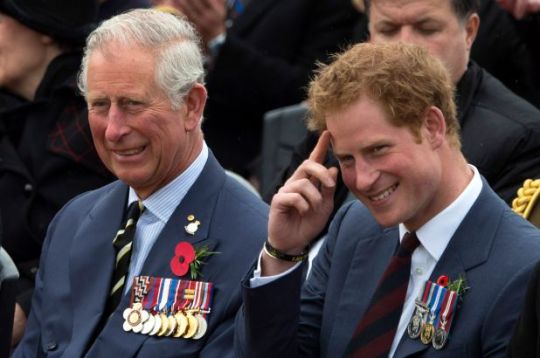
We are back to Bagehot again. For it was he who argued that the constitution was divided into two branches. The monarchy represents the “dignified” branch. Its job is to symbolise the state through pomp and ceremony. The government -Parliament, the cabinet and the civil service - represents the “efficient” branch. Its job is to run the country by passing laws and providing public services. The dignified branch governs through poetry, and the efficient branch through prose. The monarchy certainly doesn’t govern through commercial exploitation of its brand as an end in itself.
Today, the dignified branch is trying to adapt to an age of populism and until recently it’s been doing a much better job than the efficient branch. But the monarchy must never lower itself to the lowest common denominator to satisfy the base instincts of populism. As Bagehot aptly said, “An element of exaggeration clings to the popular judgment: great vices are made greater, great virtues greater also; interesting incidents are made more interesting, softer legends more soft.”
A family spat of no public importance is obsessing the nation and the world. Everyone should sit down and have a nice relaxing cup of tea.
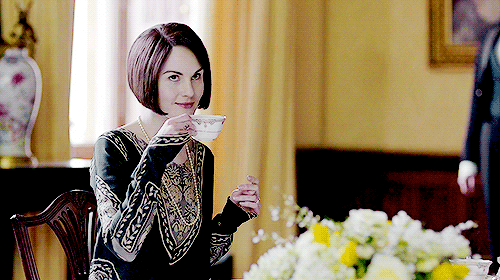
#question#megxit#monarchy#britain#prince harry#meghan markle#duke and duchess of sussex#royalty#constitution#journalism
217 notes
·
View notes
Text
Us, December 7
You can buy a copy of this issue for your very own at my eBay store: https://www.ebay.com/str/bradentonbooks
Cover: The Private Life of JFK Jr.
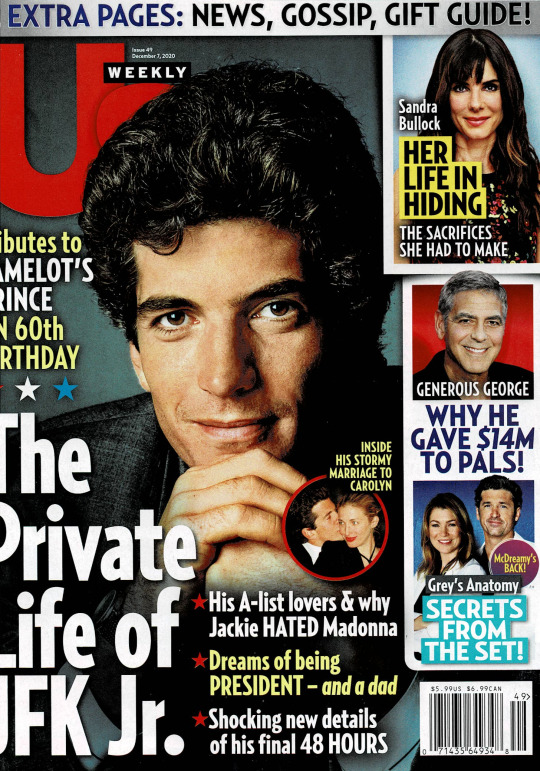
Page 2: Red Carpet -- polka dot print -- Jaimie Alexander, Scarlett Johansson, Lucy Hale, Kat Graham, Olivia Holt
Page 3: Lana Condor, Zoe Kravitz, Kelly Ripa, January Jones, Molly Sims
Page 4: Who Wore It Best? Janelle Monae vs. Jourdan Dunn in Vivienne Westwood
Page 6: Loose Talk -- George Clooney on starting a family, Demi Lovato poking fun at her split from ex-fiance Max Ehrich during lockdown, Kurt Russell on how Goldie Hawn inspires him to stay fit, Kelly Clarkson on how her 6-year-old daughter River pretends her computer screen freezes during Zoom school to avoid doing what’s asked, Barack Obama joking about his wife’s response if he worked at the White House again
Page 8: Contents

Page 10: Hot Pics -- Brad Pitt spent his entire day handing out groceries to low-income families in a housing project in L.A.
Page 11: Tom Cruise carried out his own stunt on the back of a motorcycle for Mission: Impossible 7 in Tivoli in Italy, Hilary Duff and Sutton Foster on the Younger set in NYC, Maggie Q modeled for a photoshoot in West Hollywood
Page 12: Pete Wentz playing tennis in L.A., Sarah Jessica Parker personally attended to customers at her SJP shoe brand store in NYC, Dua Lipa partners with Puma for their new campaign in London
Page 14: Queen Elizabeth and Prince Philip received a hand-made card from great-grandchildren Prince George and Princess Charlotte and Prince Louis ahead of their 73rd anniversary in Windsor, Vanessa Hudgens matched her Ferrari for a ride around town in L.A., Mossimo Giannulli looked unrecognizable with a new buzz cut just three days before reporting to prison in Beverly Hills
Page 16: Bachelor alum Corinne Olympios wasn’t shy about packing on the PDA with boyfriend Vincent Fratantoni during a seaside vacation in Tulum in Mexico, Julia Garner filmed a scene for her upcoming series Inventing Anna in NYC, Nicole Scherzinger goes for a run in L.A.
Page 18: Kelly Osbourne having to sport an eye patch in L.A., Hugh Jackman and wife Deborra-Lee Furness bundled up for a walk with their dogs Dali and Allegra in NYC, Issa Rae at one of her favorite boutiques Queen in L.A.
Page 19: Michael Madsen cemented his star status at the TCL Chinese Theatre in L.A., Andrew Garfield put his acting face on during a scene for Lin Manuel Miranda’s Tick, Tick...Boom in NYC
Page 20: Royals They’re Just Like Us -- Duchess Kate snacks on treats, Queen Elizabeth wears a mask, Duchess Camilla avoids getting wet, Prince William loves a pint
Page 23: Stars They’re Just Like Us -- Katie Holmes reads, Brian Austin Green grocery shops, Jay-Z exercises
Page 24: Friends Furever -- Jennifer Lahmers brought pup Sophie along on a coffee date with new boyfriend Jarod Keller, Shakira and her new furry addition Max the bunny
Page 26: A Star Is Born -- Sarah Hyland is 30, flirty and thriving
Page 28: Love Lives -- due to the pandemic Matthew McConaughey and Camila Alves are having trouble finding alone time
Page 29: Michael Douglas and Catherine Zeta-Jones celebrated their 20th anniversary, despite being in the public eye Taylor Swift admits she tries to find bits of normalcy in her ultra-private romance with Joe Alwyn
Page 30: Hollywood Moms -- Nikki Bella and Brie Bella on their sons
Page 31: Lala Kent may be new to pregnancy but the Vanderpump Rules star has had her fair share of parenting practice with fiance Randall Emmett’s two daughters, Tori Spelling’s five children didn’t recognize her while recently watching throwback Beverly Hills 90210 episodes, Jordin Sparks and husband Dana Isaiah are all set with their family of three
Page 34: Hot Hollywood -- Just four months after welcoming daughter Willa, Joe Jonas and Sophie Turner are already trying to have another baby
Page 35: Four months after Naya Rivera accidentally drowned in a lake her ex-husband Ryan Dorsey has filed a wrongful death lawsuit against California’s Ventura County and the county’s Parks Management and United Water Conservation District on behalf of their son Josey
* For someone who didn’t enjoy being a part of the royal family Meghan Markle sure seems interested in them -- she has started watching The Crown and she isn’t watching it behind Prince Harry’s back but Harry hasn’t been joining Meghan at the TV because he’s not interested in seeing it
* A perk of being one of George Clooney’s best friends is you’re gifted with cash just because
Page 36: A Day in the Life -- Brooke Burke
Page 37: For the cast and crew of Grey’s Anatomy having Patrick Dempsey back on set for a recent episode was a McDream -- everyone enjoyed their time with him -- when Dempsey’s character was killed off the series in 2015 there were reports at the time that his exit was ugly but he put rumors to rest with his unexpected return
Page 38: Cover Story -- The John F. Kennedy Jr. nobody knew -- in honor of what would have been his 60th birthday those closest to the late JFK Jr. reflect on his humor and wit and big heart
Page 42: Inside Sandra Bullock’s private world -- the actress has taken a step back from the spotlight to focus on life at home with her two kids
Page 46: Gift Guide
Page 52: Entertainment
Page 53: Take Five with Jack Lowden of Kindred
Page 58: Fashion Police -- Keyshia Cole, Susan Sarandon
Page 59: Kylie Jenner, Lauren Ash
Page 60: 25 Things You Don’t Know About Me -- Lea Salonga
#tabloid#grain of salt#tabloid toc#tabloidtoc#jfk jr#jfk jr.#john f. kennedy jr#john f. kennedy jr.#john kennedy jr#john kennedy jr.#sandra bullock#jack lowden#fashion police#who wore it better?#lea salonga#patrick dempsey#grey's anatomy#brooke burke#george clooney#meghan markle#prince harry#naya rivera#ryan dorsey#joe jonas#sophie turner#nikki bella#brie bella#lala kent#tori spelling#jordin sparks
10 notes
·
View notes
Note
Why is it that certain sensationalist trivias, still get peddled by professional historians as absolute truths? Like the Caranus debacle. PG's Alexander of Macedon, despite being an excellent account, still mentions the Caranus + Europa double alleged BBQfication. Even though, the timeline&Caranus' unicorn name, reek of myth? Or Stateira getting long distance impregnated by Darius (though Green suggests in fine print that Alexander raped her). What makes a historical tale more or less credible?
First, I’d caution that we look at when some of these books and articles were written. While the more recent version of Green’s Alexander of Macedon (U. Cal, Berkeley) is 1991, it’s a reprint of his much earlier Thames-and-Hudson bio from 1974, sans pictures. (Also, Green—who’s still alive and kicking!—is 97 this year, so that contextualizes his age.) A general critique of Peter for a while now (as far back as From Alexander to Actium) is that he’s not on top of the more recent publications in the field, which causes some of his conclusions to be dated. Many older scholars can be guilty of that. I can’t even keep up with everything coming out on Alexander and/or Philip and/or Macedonia each year, especially as more and more are in languages I don’t read, such as Italian or Spanish. Even my German is shaky.
OTOH, the proliferation of academic publications in various languages is great, as it signals a healthy field. OTOH, it’s problematic, as most people just don’t read multiple languages, and what languages might have been fashionable back in grad school has shifted since. Additionally, Americans are at a real disadvantage due to our very poor education system here when it comes to learning languages (Spanish aside)—unless one is wealthy enough to attend private schools. And that’s a topic for a different post about elite education in Classics, and the language barrier.
But the upshot is that, while older scholars often gain real breadth of knowledge that allows connections and conclusions younger scholars just can’t make yet, it can become harder to keep up with everything coming out, on top of teaching and service requirements at universities. I’d love to have more time to read the latest—but I can’t and get all my student papers graded, attend all the meetings I have to go to, prep new classes, learn online platforms, etc., etc.
One reason we try to protect pre-tenure faculty from undue service IS so they can write/publish (and do the reading required). Post-tenure, All That Other Stuff starts demanding our time. Way back in grad school, Gene Borza told me, “You will never have read so widely and know as much about a particular slice of the field than you do right now.” I thought he was joking. I know a lot more now than I knew then, to be sure—but feel perpetually behind on recent research.
Anyway, I mention the publication date because history is an ever-developing field. We can talk about Alexander studies as a series of “waves,” if you will. The initial wave viewed Alexander very positively, starting with Droysen (late 1800s), through Tarn, Burns, Milns, Robinson, some others, down into the 1960s and early ‘70s. Hammond was kinda the last of them, who published well into the ‘90s, also arguably Hamilton (although I see him as less forgiving). But this was the Great Man approach. Sources were taken mostly at face value, including Greek views of the Macedonians, with a distinct taste for colonialist narratives such as Plutarch (the Greek “civilizing” of the Barbarian East, etc.). Hammond, however, was among those who seriously questioned Greek views of Macedonians…even while he accepted other things uncritically.
So, in short, these are not absolutely separate buckets. Just general trends.
The next wave brought the Skeptics, engendered by Badian, Schachermeyer, Fredericksmeyer, Green, etc. It still had a fair bit of unconscious colonialist (and misogynistic) taint but began to do much more rigorous source criticism. Maybe ol’ Alexander wasn’t so great, after all. I think of Ian Worthington as still in that vein—Hammond’s flip side. Ha. (Which is funny as Ian edited Nick’s festschrift [a collection of papers in honor of a person]. But Hammond was a legend in his lifetime. Regardless of whether one agrees with everything he wrote, his impact on Macedonian history simply can’t be overestimated. I don’t think anybody, ever again, will [or can] have that sort of influence, given how the field has grown.)
Anyway, around the same time, Macedonian studies (and Philip) were opening as a field in their own right, thanks to Edson and Dell—and Hammond—followed by Borza, Errington, Ellis, Cawkwell, Walbank (Hellenistic), and Greeks like Hatzopoulos and Palagia, then Greenwalt, Anson, Adams, Heckel, Carney, Baynham, Atkinson, etc.
(I’m leaving out names, I’m sure, as I’m doing this on the fly without my library at hand, so apologies.)
Anyway, these things dovetailed to give us some new perspectives, including an attempt to detangle Macedonia from S. Greece, and to spot the misogyny behind texts (thank you, Carney and MacCurdy, et al.), and generally to think further about matters of culture and textual context.
I was a grad student at the back end of that wave, btw.
The “new”(-ish) wave(s?) have been to further contextualize our sources, not just to separate Greek from Macedonian, or to seek the sources behind our extant biographies, but to better recognize the Roman (imperial) overlay. It’s not that earlier historians didn’t know our existing sources were Roman era, but that the focus had been on trying to determine the sources behind our surviving sources: e.g., Kallisthenes, Kleitarchos, Ptolemy, Aristobulos, etc. Lionel Pearson’s The Lost Historians of Alexander the Great was the classic text of that type. What Pearson (and others) did less was talk about contemporary (Roman) influences on our surviving authors.
This new wave includes scholars like Asirvatham, Müller, Ogden, Bowden, Spencer, Pownall, Howe, Finn, etc., etc. There’s also good work being done on military stuff, following Heckel. They’re very much into the textual evidence. Also Carney still, and Baynham. So these are new trends in Alexander historiography.
A feature of this third/fourth wave has been to pick apart some heretofore accepted stories—such as, say, proskynesis. Or the story of Statiera mentioned in the Ask. You’ll see that new take in the forthcoming Netflix docudrama. Alexander isn’t so hands-off. Although I don’t think it was rape so much as Realpolitik, once it became clear Darius had abandoned his family to their fate. And maybe not even Alexander’s idea. 😉
We saw such questioning even in the second/early third wave. Take Karanos. That’s been questioned by Borza, Carney, Greenwalt, et al. BUT Greenwalt has really interesting things to say about the evolving genealogy of the Argead house across time, with morphing forefathers, depending on who the king was. So we get Perdikkas under Alexandros I and Perdikkas “II,” then an Archelaos under Archelaos (Euripides’ lost play), and finally, Karanos under Philip II (or post-Philip). Jonathan Hall in (et al.) Hellenicities talks about the creation of these falsified genealogies in ancient Greece as a means to build and (re-)affirm bonds for political, military, and trade purposes. These things don’t stay the same across time.
The upshot remains that it’s important to check the publication date for any particular book or article, and be sure it’s the original publication, too. Again, the 1991 Univ. of Cal, Berkeley edition of Alexander of Macedon = the 1974 Thames and Hudson’s book of the same title. (If you Google it, you’ll find the “originally published” date, btw.) In short, he wrote it before most people had begun to question the finer points of Kleopatra-Eurydike’s murder by Olympias. OR before so much doubt had been thrown on Justin as a source. (Just wait for the chapter by Carney in the work I’m currently editing. She’s going to trash and burn OH, so much of Trogus/Justin. I’ll give no more spoilers, but yeah. It’s a long, but very good chapter on historiography.)
So publishing date is one thing to look at.
The other is WHO did the writing.
There’s always been a small cottage industry in publishing on Alexander, but quite a few bios have come out recently by people who aren’t Macedonian specialists, or even (sometimes) trained Greek historians (Everitt, I’m looking at you).* Even Goldsworthy’s dual bio, which formed the basis of the recent History Channel episode, was written by a Romanist, albeit he’s known for his military topics. Paul Cartledge, who also wrote a popular bio on ATG, is a specialist on Sparta. Some scholars are one-foot-in, like Carol Thomas, who did Alexander and His World (2006). She knows more about Macedonia due to personal contacts, but her area of serious scholarship is the Dark Age/Early Archaic Age (= Early Iron Age).
So, yes, it’s really important to ask, Who wrote the book/article I’m reading? How deep are they into scholarship on ancient Macedonia/Alexander/Philip II, etc.
The latest bios of Alexander by actual Alexander specialists are Sabine Müller’s Alexander Der Grosse: Eroberungen - Politik – Rezeption (2019), Franca Landucci’s Alessandro Magno (2019), Hugh Bowden’s Alexander the Great, a very short introduction (2014), Edward Anson’s Alexander the Great: Themes and Issues (2013), Lindsay Adams Alexander the Great: Legacy of a Conqueror (2005), and Ian Worthington’s Alexander the Great: Man and God (2004) and the later By the Spear, which includes Phil, too (2016). (Ed Anson also did Philip II, Father of Alexander the Great: Themes and Issues, 2020.) I've probably missed one, so apologize in advance. Again...library is in my office.
If you want to read a biography of Alexander, read a couple of those.
I’ve thought more seriously of late about writing my own biography, intended for non-specialists (e.g., without footnotes but with “for further reading”). Many of these by my colleagues have been textbooks, like Lindsay’s and Ed’s. I’d be more inclined to write it for the interested non-specialist. But I’d have to find a publisher, and I wouldn’t even seriously consider it until this Hephaistion & Krateros book is done.
Also, I might have a hard time selling “yet another” biography on Alexander, especially if it’s not dripping with drama and/or cherished myth and/or doesn’t try to paint Alexander as either a god or a monster.
Or maybe THAT could be the selling point. “This is the biography by a specialist that brings the interested reader up to date on the latest scholarship regarding Alexander, Philip, and Argead Macedonia, but does it in layman’s language, and isn’t a college textbook.”
---------------------
*You may wonder why publishers buy books from historians who aren’t Macedonian specialists? Well, sometimes they want that. Carol wrote hers precisely because she’s not a specialist, but had contacts who were, and therefore was thought to be better at breaking it all down for students. Other publishers want the sensationalist stuff, or a “new angle” (which is rarely actually new).
#Alexander the Great#historiography of Alexander the Great#historiography of ancient Macedonia#ancient Macedonia#sensationalism in popular biographies on Alexander the Great#Classics#asks#tagamemnon#ancient Greece
20 notes
·
View notes
Text
Everything We Know So Far About Meghan Markle and Prince Harry's Royal Baby - TIME
New Post has been published on https://harryandmeghan.xyz/everything-we-know-so-far-about-meghan-markle-and-prince-harrys-royal-baby-time/
Everything We Know So Far About Meghan Markle and Prince Harry's Royal Baby - TIME

When Meghan Markle and Prince Harry announced Markle’s pregnancy this fall, they weren’t just making news; they were making history. Just as the Duchess of Sussex herself has been an unprecedented addition to the British royal family, so too will her future child become emblematic of change as a bona fide royal with American ancestry and a mixed-race heritage — a Windsor first.
The Duke and Duchess of Sussex shared their good news about Markle’s baby on Twitter through the Kensington Palace Twitter account just before embarking on their royal tour to Australia, Fiji, Tonga and New Zealand in October. Their royal relatives, including Queen Elizabeth herself, reacted with delight to news of the expected new member of the royal family after learning of the pregnancy at Princess Eugenie’s wedding, while Markle’s mom Doria Ragland also expressed her happiness.
Since the news broke, Markle and Prince Harry haven’t been shy about what Harry called their “upcoming baby” and “our little bump,” thanks to their many engagements Down Under. Pregnancy clearly hasn’t slowed her down so far. So now that royal fans are on Meghan Markle baby watch, here’s everything we know so far about Meghan Markle and Prince Harry’s baby, including the Meghan Markle baby due date, its place in the British monarchy’s line of succession, potential name choices, and other Meghan Marle baby news.
When is Meghan Markle’s baby due?
The Meghan Markle baby number one to be born sometime in Spring 2019, according to the royal notice. Like with its royal cousins Prince George, Princess Charlotte and Prince Louis — children of Kate Middleton and Prince William — the palace is playing its cards close to the chest concerning a more specific due date for the royal baby, keeping us guessing. But speculation will certainly begin to ramp up in March 2019. Spring has also been a popular time for royal baby births: Prince Louis’s birthday is April 23 and Princess Charlotte’s is May 2. (Prince George is a summer child, born July 22.)
What will Meghan’s baby’s name be?
Like with most royal baby news, information about the name of the future offspring of Prince Harry will be closely guarded by the family, and we’re unlikely to know before the palace is ready to share the name. But that hasn’t stopped the betting, with gambling companies already setting odds on Meghan Markle’s baby’s name just as they did with Prince Louis, Princess Charlotte and Prince George before. (Betting on royal baby names is something of a British royal tradition, with oddsmakers having a field day with predictions.) So far, online betting pool Ladbroke’s shows Victoria as the favored name, followed by Albert, Diana and Philip in a dead heat of 10/1 odds. (Other popular options include Alice and Arthur, followed by Alfred, Elizabeth, James, Mary, Alexander, Alexandra, Charles, Edward and Frances.) Each of the names comes steeped in royal history.
What is the gender of Meghan Markle’s baby?
So far, Markle and her prince have stayed officially mum on whether they’ll be welcoming a boy or girl to their family. But of course speculation has already run rampant, urged along by help from Harry himself: while on tour in Australia, one well-wishing fan shouted at Harry “I hope it’s a girl!” — and the Duke responded with, “So do I!” But with no further information than this one-off comment, oddsmakers have the chances of boy or girl set at an even split so far, with plenty of time for more developments on the gender front as time elapses.
How will Meghan Markle’s baby change the line of succession?
The royal family tree will get a new branch after Markle gives birth to her first baby in the spring. Currently, Prince Charles is in line for the crown following his mother, Queen Elizabeth II. After Charles, his son Prince William, Duke of Cambridge is next up for the task. And then Will’s children with Kate Middleton, Duchess of Cambridge follow: Prince George first, then Princess Charlotte (after the law was adjusted to allow women equal status in royal succession) and finally Prince Louis, who was born just last spring.

Getty Images (7)
Prince Harry, Duke of Sussex then takes his place as sixth in line to the throne. When his baby with Meghan Markle is born in the spring, that child will become the seventh in line, bumping down Prince Andrew, the brother of Prince Charles. Andrew’s daughters Princess Beatrice and Princess Eugenie, who was recently married at Windsor Castle, round out the top ten with the ninth and tenth spots in the line of succession, respectively.

Princess Charlotte of Cambridge and Prince George of Cambridge attend the wedding of Princess Eugenie of York and Jack Brooksbank at St George’s Chapel on October 12, 2018 in Windsor, England.
Pool/Max Mumby—Getty Images
Will Meghan Markle’s baby be a prince or princess?
The future child of Meghan Markle and Prince Harry will be of royal blood by birth — but he or she may not start off life with an official royal title as a prince or princess. In fact, the new royal may never end up with a “prince” or “princess” title at all, as ABC News royal contributor Imogen Lloyd Webber explained to TIME.
It all goes back to a 1917 royal decree made by King George V which limited the expansion of the monarchy by minimizing the family members eligible for those fancy prince and princess titles. When it comes to great-grandchildren of the monarch, only the oldest living son of the oldest living son of the oldest living son of the monarch was to be afforded the “titular dignity of Prince or Princess prefixed to their Christian names.” (So today, that refers to Prince George, who’s the son of William, grandson of Charles and great-grandson of Elizabeth. Got that?) Everyone else was to be just a Lord or Lady.
But there was a snag in the plan. Queen Elizabeth changed all that when she decreed that all of Prince William and Kate Middleton’s children would be styled as Prince or Princess after all — which is why Charlotte and Louis, Will and Kate’s second and third children, have their titles.
Yet for future great-grandchildren — that means the children of Prince Harry, Princess Beatrice, Princess Eugenie and all the rest of the Queen’s grandkids — all bets are off. Lloyd Webber suggests it’s unlikely the Queen will make further changes, even for Harry’s offspring. “There aren’t really grounds for it,” she told TIME. Instead, because of remaining laws and traditions around titles, Meghan Markle and Prince Harry’s future baby will probably end up as an Earl of Dumbarton or a Lady Mountbatten-Windsor, depending on its gender. And if it’s a boy, he may one day inherit the Duke title — but if it’s a girl, she’ll remain a Lady, not a Duchess, unless the House of Lords makes some big changes to longstanding laws.
Will Meghan Markle’s baby have American citizenship?
We don’t know yet how the royal family will decide to go about the citizenship plan for the new royal baby. As royal expert Kelly Lynch told TIME, “No one in royal history has had an American mother, it will be fairly interesting to see what happens.” Upon the baby’s birth, “the child will be fully British.” U.S. law allows that any child born to an American parent in wedlock who has lived in the States for at least five years (two of those years over the age of 14) can be granted U.S. citizenship, even if the child is born outside of the U.S. Under that rule, Markle could grant her future baby American citizenship without a problem.
However, there’s a hitch: it’s not clear if Markle herself intends to retain her own American citizenship, or if she’ll be renouncing it in due time. If she proceeds as a dual U.S.-U.K. citizen, she would be vulnerable to an IRS audit, which could then make the royal family’s finances public — and that’s not something the British royal family has ever wanted done. At the same time, she’s not yet a full British citizen; that requires over a year of “indefinite leave to remain” status and a British citizenship test, with Markle having only relocated to the U.K. during her engagement to Prince Harry.
But presuming Markle does end up saying goodbye to her American citizenship, since the baby will be born on British soil as a British citizen, it’s unlikely it will be able to claim American citizenship as well. We’ll just have to wait and see how they choose to handle this delicate — and unprecedented — new point of protocol in royal history.
Write to Raisa Bruner at [email protected].
Source: http://time.com/5445288/meghan-markle-baby-news/
2 notes
·
View notes
Note
Omg it was so good. I knew it was going to be good and I was looking forward to it so much but I didn't realise HOW GOOD it would be. I'm totally the same, I'm in London at the moment and I've immediately got back online to see if I can nab another set of tickets before I leave. Tbh even though I'm a history person I've never really been into US history but this gave me so many feels about it just from one show. I need to find some good books!
YOU WANT SOME GOOD BOOKS ON US HISTORY, YOU SAY.
Hi. You probably should not have said such a thing in my presence. Even though I am not an Americanist by training (my focus was primarily Latin American political history during the Cold War, with a weird side quest into modern China for fun) I do enjoy reading the occasional ‘Merican history, mostly 18th and 19th century stuff. Here’s what I suggest (in a vague sort of chronological order) if you’re looking for some readable, popular history:
1491: New Revelations of the Americas Before Columbus, by Charles C. Mann. This does some seriously killer survey work in trying to create a snapshot of the Americas on the eve on contact and conquest. There’s some really great demographic work in this one, too. And Mann wrote a follow-up to this called 1493, in which he looks at the immediate consequences of contact.
The Wordy Shipmates, by Sarah Vowell. Couple of things: you should get the audiobook version of this, because it’s a delight (Vowell is the voice of Violet in The Incredibles, and she gets everyone from John Oliver to Stephen Colbert to help read portions of the book), and also this one isn’t nearly as scholarly as the others I’m recommending, although the sourcework is still damn good. This is Vowell’s meditation on the development of American exceptionalism, and she wrote this shortly after 9/11, and there are parts that moved me to tears even as I laughed. She’s bitingly sarcastic, piercingly critical, and deeply, deeply invested in the notion of America at its best and most inclusive. And this is on of the very few accounts of Puritans (well, this and the book below) that makes them seem human and interesting to me instead of just joyless, over-starched, judgmental colonizers. I also recommend pretty much all of her other books– although you can maybe skip Unfamiliar Fishes (there are some issues with that one, I think).
The Name of War: King Philip’s War and the Making of American Identity, by Jill Lepore. Pair this one with the book below, okay? This is a really fascinating analysis of the context, causes, and consequences of the 1675 war between native populations and English colonists in New England– it’s a really great meditation on the notion of civilization, barbarity, and racial construction.
The Witches: Salem, 1692 by Stacy Schiff. Holy shit, this one is so good. Schiff is one of my favorite popular historians, because she is So Good at sourcework and analysis. She won a Pulitzer for her biography of Cleopatra VII, and this one is, I think, maybe even more interesting. I love how good she is at finding agency and context for female action in a world that devalued both. And she’s absolutely non-judgemental about the spiritual and magical world of early Colonial America: she doesn’t go, “Well, obviously, they’re nuts and no one was flying through the air on a staff,”– she just says, “Here’s what the testimony says, here’s the history of similar cases, here’s the world in which these people existed.” I love it.
The Hemingses of Monticello: An American Family, by Annette Gordon-Reed. So you know how, in fandom, we all have problematic faves? Jefferson is my Problematic Fave in American history. He’s this brilliant polymath who writes searingly beautiful passages about human nature and freedom, and his letters to Adams late in life are just– they’re amazing, and invaluable as articulations of the foundational principles of government in this country. AND YET. Jefferson owned human beings, and he knew it was wrong. He had a long standing sexual relationship with a young girl– Sally Hemings was SIXTEEN when it began, and he was in his forties– who he owned. As property. And an enslaved person can in no way consent, which means that this was rape, and it continued until his death. This is an absolutely amazing work tracing out the original sin of chattel slavery in the Americas in general, Virginia in particular, and at Monticello in the granular. It’s done such an incredible job of putting Sally and her family back into the Jeffersonian story that Monticello, when I visited last summer, was actively excavating and restoring the area where they believe Ms. Hemings’ room to have been; it had been converted to public restrooms in the 1930s, if that gives you an idea of how much this Wasn’t Talked Of.
Bury My Heart at Wounded Knee: An Indian History of the American West, by Dee Brown. Okay, so this is from 1971, and really if you’re reading this, you should do so with the increased political activism of AIM in mind, okay? And that probably means you should do some reading on that in the first place. But this is one of those foundational texts that takes traditional narratives of Manifest Destiny and questions them deeply, and tries to recenter the conversation around the experience of Native peoples’ and growing US imperialism in the 19th century.
A People’s History of the United States, by Howard Zinn. This is a classic now, I guess? Which is weird, because I’m used to thinking of it more as a counter-culture narrative. Zinn is deeply invested in history-from-the-bottom-up, and rejects the general pattern of Great Man history. So this is an account of American history from the view of people out of power– and there are definitely gaps, and problems with it, but I find it invigorating and powerful, and a reminder to always, always focus on the people, not the names.
And then I had to read, like, Miracle at Philadelphia (on the writing of the Constitution) and The Jacksonian Era (on the asshole who was responsible for the Trail of Tears and who is still on our fucking twenty dollar bills for some damn reason) for AP US History back in the day, but I can’t say I recommend either. Um, David McCullough’s biographies are good, if you’re into Great Man stuff. And then obviously Ron Chernow’s bio of Alexander Hamilton, for Reasons.
7 notes
·
View notes
Text
An Elusive Peace, Chapter 7
[Read on AO3]
Rating: T
Summary: For Hamilton and Eliza, peace was supposed to mark the end to their separation and the beginning of domestic bliss. But Hamilton’s ambition and the challenges facing the new nation quickly interfere. Happily ever after may not be as easy to attain as they once hoped.
Ham gives a very important speech, and then they adopt a new baby...
February 1787
Steam wafted from the silver coffee pot as Eliza finished pouring the freshly brewed beverage. She’d never much cared for coffee, especially not the way Alexander drank it—piping hot and strong, with not a cube of sugar or drop of milk to soften the taste—but she did enjoy the smell in the mornings. When she placed the top on the pot, the scent of freshly baked bread and sizzling bacon quickly replaced the coffee.
“I can see to the rest, ma’am, if you’d like to go up now,” Judy offered with a sunny smile as she flipped a strip of bacon over.
Alexander had hired the young woman a few weeks ago after hearing her plead for assistance at his last meeting of the Manumission Society. Her former master had freed her upon his death, but his son, a Major Turner, was doing his utmost to ignore that particular provision of the will; the ensuing controversy had made it nigh impossible for the poor girl to find honest work. Although it strained their budget to add another member to their household staff, Eliza was more than happy to have her help with running the house and managing three willful children.
“Thank you, Judy,” she replied amiably. “I suppose I should set Philip to his reading, and I’m sure Mr. Hamilton will be wanting his coffee.”
She placed the coffee pot and the basket of bread on a tray and mounted the stairs. As she came to the top, she heard Pip chattering on about something along with the distinct sound of a newspaper page being flipped. Angelica’s tinkling giggle filled the space between Pip’s enthusiastic conversation.
When she entered the room, Pip’s chatter had given way to a series of grunts, and he was squatting on the floor with his arms hanging loose between his legs. “Philip, what on earth are you doing?” she asked as she set the tray on the table.
Pip answered with a series of short ‘oo’ sounds as he leaned his weight on his knuckles and scooted forward. “Monkey,” Angelica giggled, turned sideways in her chair and clapping her little hands together with delight. Alexander had peeked over his paper to watch Pip as well, his eyes alight with amusement.
“So, will you, Papa? Please?” Pip asked, pushing himself upright again.
“Tomorrow, perhaps. If you’re good, and do just as Mama says today,” Alexander replied, with a fond sort of exasperation in his tone. Pip must have been pestering him about something while she was downstairs seeing to breakfast.
“What is it you’re getting if you’re good today?” Eliza asked.
“I get to see the monkeys,” Pip said excitedly.
Ah. She ought to have guessed. One of their neighbors, further up Wall Street, had acquired the exotic pets recently. Pip had spotted them swinging in a tree last Sunday, when the family had taken a walk after dinner. Alexander had lifted Pip to sit on his shoulders so he could watch the creatures play, and their son had been obsessed ever since.
“Well, the first step in showing me what a good boy you are is to get to your reading,” Eliza told him, nodding towards the Bible on the sideboard.
Pip’s shoulders slumped dramatically, but he obeyed, trudging towards the sideboard, retrieving the Bible, and shuffling to her side to begin his morning reading. Eliza poured out Alexander’s coffee as Pip began his halting oration. Alexander thanked her softly when she pushed the cup forward towards him, and she began slicing and buttering the bread for Angelica and Alex. When Judy came up to serve the tea and the plates of Johnnycakes and bacon, Eliza allowed Pip to resume his seat at the table for his breakfast.
Little Alex had squeezed the pieces of bread she’d sat on his highchair into balls, and he began to throw them onto the ground. Pip and Angelica were both snickering, which made the baby grin. “Oh, Alex,” Eliza sighed, taking the bread away and replacing it with a few pieces of Johnnycake. That, at least, the child began to gum with interest.
Alexander was looking pensively down at his plate when she looked over at him again. The Johnnycakes and bacon were untouched, and his son’s antics didn’t seem to have caught his attention. He was worrying about the speech he was to deliver in the Assembly this afternoon, she intuited.
“Was there anything of interest in the paper this morning, sweetheart?” she asked, hoping to distract him.
“Hm?” He looked up, frowning. “Oh, just more news about the farmers rebellion in Massachusetts.”
“The state militia still hasn’t put it down?” Eliza asked. The farmers, led by Daniel Shays, had been actively and violently protesting the high taxes laid upon them by Massachusetts since the autumn. The grievance had a painfully familiar ring to it.
“The General Court has declared Massachusetts officially in a state of rebellion, and General Lincoln defeated Shays’ retreating forces somewhere outside Petersham,” he reported.
Eliza’s eyes widened at Lincoln’s name—the great General had been the one to accept the surrender of Cornwallis’s second at Yorktown. His association with quashing a rebellion jarred her. “General Lincoln is involved now?”
Hamilton shrugged.
He was far from indifferent to the situation, Eliza knew; he was just exhausted from having been warning people about the possibility of such a problem for years. Back when he’d first been sent to Congress, he’d campaigned for the central government to have a meaningful taxation power, not only so that it might make a start on its own debt, but also to help equalize the debts owed by the individual states. Instead, Congress continued without such powers, and printed worthless paper money to pay its obligations to soldiers and citizens. Massachusetts had raised the tax burden on its poorest citizens to as much as forty percent to try to retire her own debt, and also insisted on being repaid in specie, rather than the paper money. The result was a full-fledged rebellion.
Pip made his monkey sound again as Eliza came to grips with this latest news, and Angelica followed along. Alex made a grunting sound and pounded his little fists against the wooden tray of his highchair, determined to join in the fun. Her husband brought his hand to his mouth, obviously attempting to cover his amusement.
“All right, children,” she cut in to the ruckus firmly. “If we’re done eating, it’s time to wash up and begin our lessons.”
Pip shoved half a bread roll in his mouth. “I’m still eating,” he claimed, voice muffled by the food.
“Then eat,” she directed. “And we don’t speak with our mouths full, do we, Philip?”
“No, Mama,” he agreed, mouth still full of bread.
Eliza closed her eyes and took a deep breath.
“I think I’ll head out now,” Alexander announced, taking a last gulp from his coffee cup. “I have a meeting with a client at my office this morning before I go over to the Assembly session.”
His plate had barely been touched, Eliza observed again.
He rose from the table and gave each of the children a tender kiss on the top of the head. He paused when he came to Alex, and rubbed his thumb over the baby’s chubby cheek tenderly to wipe away a spot of sticky jam. “I love you, my little lambs. I’ll see you tonight.”
“Bye, Papa,” Pip waved, a piece of bacon hanging out of his mouth this time.
Eliza followed him out into the entryway.
“Are you all right, sweetheart? You hardly ate anything.”
An embarrassed smile tugged at the corner of his mouth. “I’m fine. Just…a little nervous. You know how my stomach gets.”
She pulled him into a gentle embrace. “Your speech is wonderful.”
“Thank you.” His arms closed around her in return. “And thank you for staying up with me last night to finish it. I don’t know what I’d do without you.”
“Of course,” she said. She bit her lip, considering her next question. “Is the public permitted to sit in the gallery today?”
He tensed in her arms. “I…I think so, yes. Why?”
“I thought I’d leave Judy and Polly with the children this afternoon so I could come watch.”
A heavy sigh fell from his lips. “I’m going to lose, Betsey.”
“You don’t know that, honey. You’re very persuasive. Perhaps the Assembly will see reason.” He’d worked so hard on that speech, infusing it with logic and passion in equal measure. “Given the fresh news about Massachusetts, I don’t see how they can do otherwise.”
He chuckled. “Logic and reason mean very little to these men. The import tax would bolster the central government, and Clinton would rather die than give away an ounce of his influence. Were I not loath to disappoint my constituents, I wouldn’t bother defending the act at all.”
Eliza rubbed his back and pressed her lips to his jawline. “I’d still like to see you speak, even if you lose the vote. Then you’ll know you have at least one supporter.”
His head tilted to the side and down so he could catch her lips with his own. “Thank you, my angel. I’ll look forward to seeing you.” He then extracted himself from her arms and donned his hat and coat.
“I’m so proud of you,” she assured him as he pulled open the front door.
He smiled weakly and stepped out into the cold, bright morning.
**
The gallery was more full than she’d imagine, the crowd composed almost entirely of men who were hooting and hollering at each other in a manner that reminded her very much of her five year old son. And, much like her son, her presence and steady gaze seemed to chasten them. She swept down and across the gallery to find a seat in the front row, leaving a more orderly and composed crowd in her wake.
“Ma’am,” a man on the bench near her greeted, making to rise despite the traveling desk he had set up on his lap. She waved him down and sat beside him. “Mr. Childs, ma’am, of the New York Daily Advertiser.”
“Mrs. Hamilton,” she introduced herself, smoothing her skirt as she settled into her seat.
The reporter nodded. “Your husband is meant to give quite the speech. I’ll try my best to do him justice in my account.”
She smiled politely, though she’d yet to see any account of her husband’s speeches that did him justice. There was something about the conviction and earnestness of his delivery that simply couldn’t be captured by the written word. Her gaze fell to the floor of the Assembly, and she saw her husband sitting down, studying the notes he’d made last night.
Alexander seemed to feel her stare after a long moment, and he looked up with a small, tender smile. She waved subtly and blew him a kiss, which he pretended to catch. She laughed. Some of the tension in his shoulders seemed to ease, making her doubly grateful she’d insisted on coming today.
The chairman banged his gavel at the front of the room, calling the meeting to order. “Good morning, gentlemen. Today we consider further the act granting to Congress certain imposts and duties, and specifically the clause regarding the grant of power to Congress to levy such taxes.”
Alexander rose from his seat.
“The chair recognizes Mr. Hamilton from New York City.”
“Thank you, Mr. Chairman.” Her husband crossed the room and stood straight-backed at the podium before the Assembly, his piercing gaze roaming across the rows of delegates, as though drawing them all in before he began to speak. A noticeable hush fell over the room, except for the sound of quills scratching steadily as the newspaper men began to copy down her husband’s words.
“Mr. Chairman, There appears to me to be some confusion in the manner of voting on the two preceding clauses of this bill,”* he began, voice clear and firm. Eliza settled in to listen, watching with fascination as he seemed to gather passion with each word. As he spoke, he began to pace, his gaze moving from one man to the next as he walked. The mass of powdered heads below moved with him, back and forth before the podium.
He’d added a piece last night where he quoted directly from the Declaration of Independence to bolster his claim of constitutionality. He hadn’t written those words down when he decided to add them; he knew them by heart. She’d heard the words so many times, but to hear her husband speak them now, they felt fresh, and new, and impossibly moving. The men around her were all nodding, captivated.
As he came to the end of the of his argument regarding the constitutionality of the bill, his voice rose, impassioned. “If the arguments I have used under this head are not well founded, let gentlemen come forward and shew their fallacy. Let the subject have a fair and full examination, and let truth, on whatever side it may be, prevail!”*
No one stood to argue with him. No one dared.
He continued on for more than an hour, his chest working visibly and color rising in his cheeks as he built the foundations of his argument, stone by stone. Properly funding a central government posed no danger to the public liberty, he argued, and given the state of the country’s finances, the measure before the assembly was absolutely necessary to the continued existence of their country. New York had become the Atlas of the union, he claimed, and to leave the system as it was would be an act of political knight errantry.* Soft laughter emanated from the crowd at the image, just as he’d intended, and she saw Alexander smile faintly. Still he pushed on, making his points with zeal. Heads bobbed around the room as he made point after point.
Alexander’s knuckles were white against the podium as he worked towards his conclusion. “What will be the situation of our national affairs if they are left much longer to float in the chaos in which they are now involved… if there are any foreign enemies, if there are any domestic foes to this country, all their arts and artifices will be employed to effect a dissolution of the union. This cannot be better done than by sowing jealousies of the federal head and cultivating in each state an undue attachment to its own power.”*
A stunned silence reigned.
Alexander was breathing hard, absolutely spent from the effort. When he stepped down, she saw him bend at the waist and hold on to the nearest table. She worried suddenly that he would faint, given how little sleep and food he’d had over the last day. But he pushed himself up again after a moment and made his way to his seat under his own power.
“Is there to be a rebuttal?” the chairman queried, stepping up to the podium again.
Another long beat of silence passed, before one of the delegates rose from his seat. “I move for an immediate vote on the clause in question.”
Eliza felt her heartbeat quicken in her chest. Had he done it? Had he convinced them?
“I second,” another voice called.
“A motion for an immediate vote has been duly made and seconded,” the chairman called. “The vote shall now be taken.”
“Yea,” the first delegate cried.
Eliza smiled and clasped her hands together on her lap. Oh, he’d done it. She tried to catch his eye. He was sipping from a glass of water, his face tense.
“Nay,” the third man voted. And the fourth. And the fifth.
The smile leached from her face.
No. No, no. He’d worked so hard. No one had even bothered to rebut him. They knew they couldn’t compete with his words, with his ideas.
“The clause is defeated by a vote of 36 to 21. The assembly will now consider—”
She fixed her attention on her husband. His face had regained some color, at least, she noted. He’d known he’d be defeated, but the fact that no one had even bothered to try to argue against him galled her. Why should he entangle himself in petty politics at all, when this was the result?
His gaze traveled up to the gallery and landed on her.
She made herself smile at him. “I love you,” she mouthed silently.
His expression went soft, and he gave her a little nod.
**
“They couldn’t even muster a counter argument,” Eliza complained that evening as Alexander removed his coat and hat.
“They didn’t need to,” he sighed, resigned. “I told you I would lose, Betsey.”
“It’s just not fair.”
“It’s politics. It’s not meant to be fair. And it doesn’t matter anyway. We’ll be meeting in Philadelphia in May to overhaul the whole system. Let Clinton have his way for now. It will be out of his hands very, very soon.”
She held her arms out to him, and he sank into her embrace.
“I worried you were about to faint when you finished.”
“I just needed a moment to catch my breath.”
She frowned, unconvinced. His health, always delicate, felt especially tenuous when he began to overextend himself. It had been her initial concern when he went to the convention last fall, and so it remained. “You should go change into something comfortable. We’ll get some good, hearty food into you, and then you can have a proper rest.”
He pulled back from her and grinned. “No.”
“No?”
“I refuse to stay home and wallow in my defeat. Troup told me he has extra tickets for the theater tonight. Let’s get dressed up and go out.”
“Are you sure? You seem tired, sweetheart.”
“Tired? Me?” He took her by the hands and spun her around. “Perish the thought, my dear. Besides, between my practice and the New York Assembly, and you looking after the children, we haven’t had a proper night out in far too long. It will be fun.”
She couldn’t help but laugh; his good humor was contagious. “If you insist.”
“I most certainly do.”
“Papa!” Pip appeared in the entry to the parlor, bouncing eagerly on his toes. “Papa, I was really, really good today. Really! I listened to mama, and did all my letters and my sums. So can we go see the monkeys tomorrow?”
Alexander laughed and bounded forward to scoop him up. “I may give you to the monkeys. You and your sister. You should be raised amongst your own kind.”
“We’re not monkeys, Papa,” Pip protested.
“Are you sure? You sound like a monkey.”
“No I don’t.”
Alexander tickled him under the armpit, and he squealed with laughter. “Hmm, you’re right. Maybe not a monkey. Maybe you’re piglets?”
“No,” Pip giggled.
Eliza shook her head fondly as she headed upstairs to change for a night out. After selecting a dress and quickly fixing up her hair, she returned to find the animal game apparently still going. Her husband was on all fours with both Pip and Angelica on his back, and Pip was urging, “Giddy up, Papa!”
She leaned against the doorjamb, smiling at the scene.
**
Eliza tucked her hand into Alexander’s elbow and used her free hand to hold her skirts up from the snowy sidewalks as they hurried into the theater. The doorman pushed the door closed behind them as soon as they entered the lobby. Two fires glowed at the far end of the room, and she sighed at the warmth.
As she handed her cloak over to be stored, she heard a murmur of excitement ripple through the crowded lobby. She glanced back, assuming someone of importance had arrived. To her surprise, most eyes were trained on her and her husband.
Robert Troup was standing nearby, and he seemed to be encouraging in the interest in Alexander. When Alexander finished checking his coat, Troup called out, “Let’s hear it for Ham, the great man himself!”
A round of huzzahs followed, with almost the entire lobby partaking. Eliza laughed, shocked, and looked around to see Alexander blushing furiously. Troup stepped up and slapped Alexander on the back.
“Glad you came, Ham,” Troup said. “There’s talk of making you governor, after that speech of yours. You’d be a good improvement over Clinton, that much is certain.”
“It was hardly worth all this fuss,” he demurred.
“You were wonderful, darling,” Eliza interjected.
He laughed, clearly still uncomfortable, but he thanked her softly.
“There’s a few people eager to speak with you, if you wouldn’t mind,” Troup added.
Alexander glanced at her.
“Go ahead, sweetheart. I’ll go keep Mrs. Troup company,” she urged, kissing his cheek. He was quickly swept away into the crowd. Watching him for another brief moment, she looked around the lobby and spotted Jennet standing near the stairs to the box seats.
“Your dear husband is the man of the hour,” Jennet observed, taking her by the arm as she came closer.
“So I see. He certainly wasn’t expecting all this,” Eliza replied.
“He should have been. The whole city’s talking about him. He may have been unsuccessful today, but he’ll have plenty of support for whatever he can accomplish in Philadelphia this summer. Or so Troup keeps saying.”
Eliza smiled weakly. She was proud of him, truly, and glad he had so many supporters, but she wished people’s hopes for the nation weren’t resting quite so heavily on her husband’s shoulders. Jennet seemed to sense the hesitation, and she wrapped an arm around her shoulders companionably.
“Let’s go up to the box. The boys will join us eventually.” They walked up the staircase together, and Eliza took a program from an attendant outside their curtain.
She waited, and waited. Troup slipped in as the show began, but Alexander wasn’t with him. “He’ll be along,” Troup assured her in a whisper as the actors took the stage.
The first act had nearly ended before Alexander slipped into his seat at her side. He leaned close, his lips ghosting over her cheek, before he whispered, “I need to talk to you.”
“Now?”
He nodded.
Her stomach clenched. Had he accepted another government position? “All right,” she agreed, standing up and following him out into the hall.
His hand curled around hers, and he led her down the hall to a little deserted alcove.
“What is it, sweetheart?” Please, not another appointment, she pleaded silently.
“I just ran in to someone downstairs. Do remember Colonel Antil?”
She frowned, then nodded. They hadn’t seen him in some time, not since his poor wife had passed away, about two years ago. “How was he?”
Alexander shook his head. “Not very well. He’s not been coping well.” His hand squeezed hers tightly, as though he could ward off the same fate for her by holding on to her tight enough. “I suggested he come to the meeting of the Cincinnati tomorrow to request aid. He’d like to move up north to try to make a go at a farmer’s life.”
She waited, curious as to why he felt the need to immediately report this conversation to her.
“I invited him for dinner tomorrow at our house, as well.”
“That’s fine, honey,” she assured him. They had a leg of lamb she’d been planning to prepare anyway. There’d be plenty of food for a guest.
“They had a little girl, do you remember? Frances. Fanny. She’s just two.”
“I do,” she agreed, though she hadn’t remembered the little girl’s name until now.
“He can’t take such a little babe into the wilderness with him. I was hoping…” he trailed off, his gaze on the floor.
Eliza squeezed his hand. “You were hoping?”
He looked up at her. “I know it’s a lot to ask. We have three little ones already, and you do more than the lion’s share of the work. But…I was hoping we might offer to take her in. Just temporarily, while he gets settled.”
It was a lot to ask. As darling as their three children were, they were also a handful. But her heart went out to that poor little girl. If Antil couldn’t care for her properly, if she’d be in danger going with her father up north, how could Eliza refuse?
Alexander looked so earnest as he waited for her answer. He’d always had a soft spot for children in difficult circumstances. Much of it stemmed from his own difficult childhood, she knew, and his immense gratitude to Thomas Stevens for taking him in when he had no obligation to do so.
“Of course we can,” she agreed.
“You’re sure. We needn’t say anything if you’re not comfortable. Completely comfortable. It’s your choice.”
“I know,” she assured him. “We’ll offer to take her while he gets settled. What’s one more monkey in our little menagerie?”
He laughed. “You’re an angel.”
She rolled her eyes. “So you’ve said.”
“I mean it. A genuine angel.”
He leaned close, his lips hovering near hers. She wrapped her arms around him and let her lower lip drop open so the tip of her tongue could touch his. A soft moan fell from his lips. His hand started to wander from her lower back towards her bustle.
“Not here,” she whispered, pulling away reluctantly. The effect he had on her, she thought, blushing retroactively. Her mother would have fainted outright had she heard her daughter was standing in the middle of a public building kissing a man, husband or not. He made a discontented noise as she removed his hand from her back. “Keep that up, Mr. Hamilton, and we’ll have more than one little monkey joining us.”
He grinned. “From your lips to God’s ears, my darling.”
*From New York Assembly, Remarks on an Act Granting to Congress Certain Imposts and Duties, 15 February 1787.
6 notes
·
View notes
Text
The Wedding
A/N: Meant to post this way closer to their actual wedding date, but life got in the way. Though, bonus, because I commissioned the lovely @minky-for-short to draw the beautiful piece of artwork below as a companion for this and it’s perfect. Enjoy!
Modern AU: companion pieces here (x) and (x)
Link to original artwork: (x)
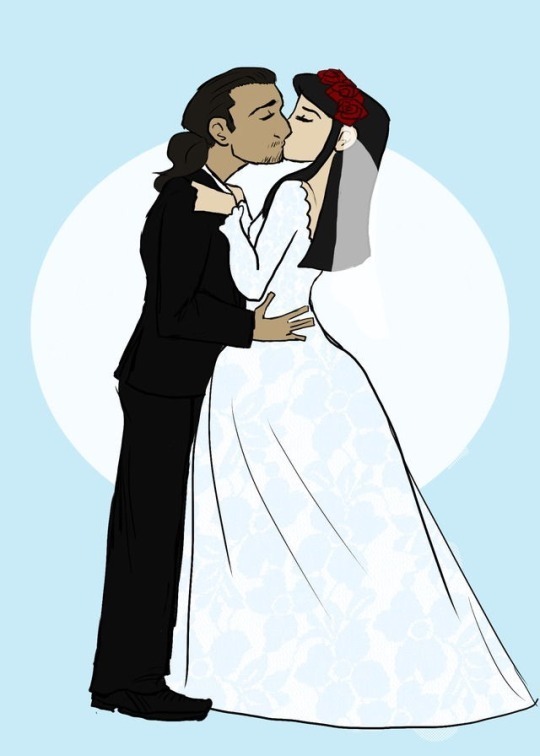
The last two days were the hardest. Eliza was being ridiculous— or so her sisters thought. “You’ve made it eight months, you can wait two more days,” Angelica had told her exasperatedly.
They just didn’t understand.
They didn’t know what it was like. The eight months had been long, long and full of confusing letters. Letters that were full of her fiancé’s self-doubt, unwarranted quips of jealousy and his overall pain. He sent her so many letters. She’d sometimes receive letters that contained several pages for days in a row.
She’d be so confused by his frantic words that she’d take ages to reply, which only made him more anxious and perhaps a bit angry with her. It was easy for her to reassure him and his insecurities in person. All she had to do was kiss him a certain way— a certain way that almost always led to other activities that most certainly made him relax. Only then would he finally relax. He became like putty in her capable hands.
But she had no idea how to fix him with her words. I love you just didn’t seem to be enough. She did the best she could with what she had. She began each one of her letters with a short paragraph stating that he was being silly, of course, she wanted to marry him and how that was the one thing in this crazy world of theirs that she was sure of. To wrap it up, she’d apologize for not writing more and reassure him that it was only because of their wedding planning. A lie, of course. Her mother had essentially planned the whole event. Everything except her wedding dress, which was the one thing she had complete control over. She didn’t write to him because she had no idea how to make him feel better with merely a pen.
She just needed him back in her arms. She needed to be with him in person again, to be able to reassure him and to not feel like a failure of a fiancee. So… yes, perhaps she was a bit impatient. She had good reason to be.
Alexander was on his way now. He was being driven by Washington’s personal driver, a fact that bothered him to no end and made Eliza’s heart soar. “It mean’s you’ll only get to me faster,” she insisted to him during the short phone conversation they were allowed. It was true, any sort of public transportation was bound to take forever, what with city after city being evacuated due to the close proximity of the British army approaching. She loved knowing that he was so close with the General. Knowing he had any sort of advantage near the war front with the supply shortages made her worry a bit less.
The General and the rest of his staff would be joining them for the wedding a week after Alexander arrived. Though there wasn’t many of them, Eliza was grateful that he had at least a few guests of his own, since her mother decided to invite every single one of their relatives.
His best man was John Laurens, a very important friend of his that she hadn’t yet had the pleasure to meet. He had been recently promoted before the Schuyler sisters had arrived in New Jersey and had been shipped off to the south to pull together a command. Even he was taking a week of leave to attend.
Eliza sat on the cushioned windowsill on the middle level of their home. She had a blanket thrown over her lap along with a weathered copy of her favorite book. She was trying to read but found herself watching for a pair of headlights through the thick fog covering the Schuyler’s vast property. The snow had finally stopped, but perhaps they decided to find a safe place to spend the night. She wanted him to be safe, of course, but she secretly hoped that he’d insisted on pressing forward.
“Beth, dinner’s ready.” Eliza’s head snapped towards the door and saw her younger sister. Peggy’s recently chopped curls hung well above her shoulders and framed her face. She was wearing a shirt that Eliza was fairly confident belonged to herself.
“I’m not hungry,” Eliza said evenly, turning back towards the window.
“Not eating isn’t going to make him get here any faster.”
“Peggy, I’m really not—“
“You didn’t eat lunch.”
Eliza huffed and turned to face her again. “I’m not a child. I don’t need you telling me to eat or anything for that matter. If I say I’m not hungry, or that I’m not tired, it’s because I’m not. I don’t need you or Ang—“
“Liz.”
“Or Mom for that matter, telling me what—“
“Eliza! Look!” Peggy pointed out the window and Eliza nearly fell off the windowsill when she noticed the pair of headlights turning down their long driveway.
“Sure it’s not dad?” She asked evenly, her dark eyes wide.
“I just saw him in the kitchen. Unless we have a surprise visitor after the ‘storm of the century’, it has to be him—
That was all she needed to hear. She was racing down the stairs as fast as she could, nearly slipping on the dark hardwood floor of their entryway. She threw open the heavy oak door and bounded down the steps. She halted suddenly, watching the front door of the sleek black car. The passenger side door opened and it was like the world finally started to spin again.
His dark hair was pulled back into a bun. He was in a serious need of a shave and a good night’s sleep. The purplish bruises under his eyes were certainly disheartening and he was clearly skin and bones but he was finally here.
It was then that he spotted her and the hard line his mouth had been in melted into the dopiest grin Eliza had ever seen. Her eyesight blurred with tears as she grinned back at him. They met in the middle, embracing each other fiercely. Even though he was much thinner than she remembered, he lifted her into his arms. She nosed at his scruffy cheek while her legs wrapped tightly around his hips and arms wound around his neck. He craned his neck to pull away just enough to press their lips together. It was a long, single kiss.
“Hi,” he breathed, his lips brushing hers as he spoke, setting her on her feet.
“Welcome home.” she hummed, smiling against his lips.
“Home…” he mused, changing the angle of their heads. “I’ve missed you so much.”
“I’ve missed you too. You’re here, you’re finally here.”
He kissed her again and suddenly someone cleared their throat. They pulled away, but Eliza refused to let go of him. It was Angelica, a smirk on her lips. “Figured you’d rather have me interrupt than mom. She said to get you both inside before you catch your death. Mama’s words, not mine.”
Eliza nodded and entwined their fingers, leading him up the icy steps of her childhood home. She ignored when Alexander inhaled sharply at the sight of her admittedly elaborate home. There were large family portraits hung on the large wall to the left, along with each of the sister’s senior portraits. It was all overwhelming for anyone, let alone Alexander who had never truly had a family.
“You’re just in time for dinner, Hamilton.” Her father greeted him as he entered the room, leaning heavily on his cane. His foot seemed to always bother him more during the cooler months. He offered his hand and Eliza reluctantly released her fiancé so he could greet her father.
“Glad I could make it, sir,” Alexander said, shaking his hand, a polite but obviously exhausted smile painted on his face. “It’s great to see you outside the war zone.”
Philip chuckled. “Oh, I’m much more in my element here, son. My wife’s the general here, as you’ll soon see. I’m afraid I’m useless once the uniform is off.”
“He really is quite useless in everything but military strategy—he isn’t exaggerating.” Catherine grinned as she entered the room. “It’s so good to finally meet you, Alexander.” she hugged him tightly. They’d had a few short conversations with the handful of grainy calls he’d managed to make to his fiancée.
“It’s good to meet you too, ma’am.” He smiled at her when she pulled away, a bit uncertain.
“You must be starving. We’ll show you your room, you can get cleaned up and then get some food in you.” She beamed at her daughter before she disappeared again, her husband in tow.
Alexander turned to face Eliza again, cupping her cheek. “You’re so fucking beautiful. More than I remember, which I thought wasn’t possible.”
Eliza’s winter pale cheeks flushed and she kissed him sweetly. “Going to absolutely ravish you the second we’re actually alone,” she informed him quietly, pausing when a thought crosses her mind. “Unless… You actually do want some rest, then I’d totally–”
He was quick to interrupt. “Do you have any idea how many times I’ve dreamt of you fucking me the past couple of months? To hell with rest. It can wait.” He nuzzled into her neck as she laughed, stroking his hair despite the greasiness. “Only, maybe I should shower first. For your sake.”
They were pulled away too soon after that and then Alexander was shown to the room he was expected to stay in. It had a conjoining bathroom and was on the highest level of the house, quite possibly the furthest room from Eliza’s, which was on the lowest. She didn’t bat an eyelash at the pointed look she was given, even though it made Alex’s cheeks look redder than she had ever seen them.
They weren’t given any sort of alone time for a few hours. It was killing Eliza, the want almost making her chest burn and ache. It didn’t help that her beloved father kept bringing up the growing stack of problems their young country would face should she gain independence. Her fiancé, her sweet, daft yet somehow intelligent fiancé’s eyes would light up with the possibilities. He offered his own solutions to the majority of their problems along with Washington’s perspective on the matter as well. He spoke so eloquently and intelligently, but all Eliza could focus on was the cluster of moles he had on his cheek or the way she wanted to suck under his jaw.
Angelica eventually joined the discussion, ignoring the sharp look from Eliza. She prolonged the evening even longer by debating with Hamilton. She had a spark in her eyes that was all too familiar to Eliza, a spark that was waiting to become a flame. The two bantered back and forth with Philip acting as the mediator.
As much fun as it was to see all of her favorite people bond, she couldn’t help but be a tad frustrated. Her Hamilton, who claimed to think of nothing but her the entire period of their separation, wouldn’t even spare her a second’s glance when she squeezed his hand. “Well,” she announced when there was the slightest lull in the full conversation, perhaps a bit too loudly. She stood up, ignoring the amused look on her mother’s face. “I think I’m going to get to bed.”
Alexander scrambled to his feet before she had even finished her sentence. “Betsey—“
“No, no. You all carry on. You’re fairing fine without me, I’m pretty useless when it comes to conversations like these, anyways.” she laughed down her insecurities and tucked a lock of her dark hair behind her ear. He looked like a wounded puppy and Eliza almost felt guilty for leaving him. “I’ll see you in the morning,” she promised, standing on her toes to kiss his forehead. She squeezed his upper arm before she stepped away. “Night, everyone.”
“Night, sweet pea.” Her mother squeezed her hand as she passed her perch on the armchair. She rounded the corner until she got to the staircase that led down the stairs to her bedroom. She shut the door behind her, trying to shake the heavy feeling that formed in her chest.
What the hell was she doing, marrying a man like that? He was going to be a leading player in the construction of their new government, he’d always made that very clear to her. She wasn’t fit for that sort of life. Growing up in the family that she did, she knew how to smile, be pretty and friendly when spoken to. He deserved and needed more from his partner. He deserved someone like Angelica, someone who was as intelligent as him and spoke their mind freely. Someone who could help build their country as well as their home.
Eliza knelt down by her nightstand and pulled the black shoebox from her lower drawer. It contained all of the letters she’d ever received from Alexander, a pressed flower he had given her once spring had finally broken in Morristown and a grainy old Polaroid photo of her fiancé as a boy, the only one he had. She grabbed the letter that laid on top of the bundle, unfolding it carefully and leaning against her bed to read it again. His words were so confusing, kind yet hurtful all at once. He wrote of a “buxom girl” who made his otherwise unbearable campaign a bit more bearable. He almost accused her of being unfaithful a mere paragraph before rambling about the joy their reunion will bring.
She’d cried on and off an entire day after reading this letter, half the tears from exasperation and frustration, and the other half from jealousy, rage, and sadness. Angelica would have known how to handle this. She wouldn’t have taken the month Eliza took to form a reply, she would have taken an hour. An hour and some witty comeback would have appeared, one that both reprimanded the frustrating man but somehow reassured him too.
She huffed, wondering why she was torturing herself with this godawful letter again. She folded it back up and found its rightful place and returning the box to its drawer. She peeled off her mustard yellow cardigan and jeans, pulling on an old tee shirt she was fairly confident she stole from Peggy and crawling into bed. She reached her arm out to turn off her lamp when her door opened a crack. “Ang, I swear to god—“ she started to threaten, convinced it was her older sister. She cut off when she spotted her fiancé’s amused expression.
“Not Angelica, sorry to disappoint.” He grinned crookedly at her. He entered her room, shutting the door softly behind him, though the unmistakable sound of the lock seemed to echo.
“Not a disappointment.” Eliza denied, sitting up in bed slowly.
“Good, because I’m fairly confident I just auctioned off our firstborn child.” He laughed at Eliza’s exaggeratedly concerned expression. “Well, you promised me a ravishing and then disappeared on me. I needed to find you and this house is like a maze. With my luck, I’d walk into your parent’s room.”
She gently moved the blankets she had thrown over herself to the side, noticing the way Alexander’s eyes lingered on her bare legs. She debated for a moment on sending him back to his room, her heart still stinging from his cruel letter. Though, what was the point in making them both suffer? “So, you promised one of my sisters our first baby?” She beckoned him over, positioning herself so she was resting on her knees, legs folded under her.
“Mhm.” He wrangled with the sweater he had thrown on after his shower, walking towards her blindly and tossing it over his head.
“Which one?” her hands went automatically to work off his jeans the second he was near enough while he mouthed at her jaw, his breath already hot.
He laughed quietly under the curtain of her hair. “Does it matter?”
“It was Peggy, wasn’t it? Seems like a very Peggy thing to do.”
His breath hitched the second she started to touch him through his boxers. “Can we please not talk about your sister right now?”
“Gladly.” She yanked on the chain of his necklace to press their lips together in a rough kiss, pulling him with her as she laid down flat on her bed.
- - -
“You smell like roses.” He hummed afterward into her hair, his arms wrapped protectively around her from behind. “Thought that was just something I dreamt up about you.”
She fought back a smile, turning her head and pressing her lips against his upper arm that her head was pillowed against. “It’s just my shampoo, baby. You could smell like roses too if you’d like.”
He merely hummed in reply, tugging her closer. “Honestly thought I’d dreamt you up if I’m being honest. There’s no way there can be such a perfect girl in the world, let alone one that falls for my sorry ass. But here you are, in the flesh,” he carefully pulled his arm out from under her and carefully hovered over her. “How did I get so lucky?”
He started to kiss at her jaw again, appearing to not being bothered by her lack of reaction. She cleared her throat, dodging the kiss he meant to place on her lips. “Well, I’m no buxom girl, am I?” He seemed to freeze and she took that opportunity to slide out from under him. She threw on her tee shirt Alexander had tossed across the room.
“Okay… That was… I was an ass, I’m sorry. You didn’t deserve that.” Alexander sat up, the sheets bunched at his waist, a deep frown set on his lips. “Though, I didn’t realize it had upset you. You didn’t mention it again.”
“I didn’t want to fight in our letters. You were already being so… odd.” Eliza searched for her discarded pair of panties. “And under a lot of stress. I didn’t want to add to it. But it hurt, Alex. Do you really think I’m that shallow, that I’d just forget about you the second someone else looked at me?”
“No. No, baby, I don’t…” Alexander sighed, scooting to the edge of the bed to stand and pull on his boxers. He found her lacy panties under the foot of the bed, handing the flimsy material to her. “You deserve better than me, you know? You can act like it’s not true all you want, but it is. You’re marrying down. I just… I was terrified of you finally realizing that.” He waited for her to slide her underwear up her legs before he took her hands and tugged her closer to him. “It’s a shitty excuse and a poor explanation, but it’s all I’ve got. You didn’t deserve that, baby, and I’m so sorry. Can you forgive me?”
Eliza looked down at their hands for a moment, the opal stone of her engagement ring, feeling the rough callouses covering his fingers, brushing against her soft skin. “I feel the same, you know. I think that you deserve more too. Watching you and Angelica together—“
“Angelica? Are you serious?”
“Yes, really!” she snapped, the incredulous tone of his voice striking a nerve, tugging her hands from his grip roughly. “You’re like, the same person. She’s as smart as you, she’s as charming as you and she’ll be able to be more of an asset to your career than I’ll ever even dream of being. And watching you two down there, I could just see you guys at future galas or parties charming everyone—“
“Baby, I don’t picture anyone at all by my side but you. I haven’t since I met you.” Alexander took her hands again, ignoring her attempts to pull away. “Is that why you were acting so weird downstairs?” When she didn’t answer, he tugged her against his body, kissing her forehead and wrapping his arms around her waist. She grumbled but didn’t try and pull away, raising an eyebrow expectantly.
“There’s a few things wrong with your theory, Betsey. The first being, Angelica and I would kill each other within a few days of being alone. Second, you have no idea how amazing you are. Everyone who meets you loves you. Which is why people are always so shocked when they find out you’ve agreed to marry me. You’re so charming and beautiful and kind, everyone loves you,” he pressed a soft kiss to her swollen lips. “Thirdly… I’m don’t expect you to be an asset to my career, nor once did that cross my mind when I asked you to marry me. I just want you. I want a partner that I’ll love even when I’m old and gray and losing my hair. I want to wake up to your cute smile every day. I just want you to love and support me and I can promise you that I’ll do the same for you.”
Eliza softened and she nodded, a small smile slowly building on her lips. She cupped his cheeks, keeping her eyes on his. “And I promise you that you’re always going to be enough for me. I’ll never look at anyone else like that ever again. I’m all yours.”
They sealed their words with a long kiss.
He hummed, bumping their noses together. “You know, we’re basically married now. Does that mean I can sleep in here with you?”
“Unfortunately, no.” Eliza grinned when he pouted, nuzzling in to his neck and hugging him tightly. “I love you so much, Alexander. I’ve been so worried—“
Alex shushed her, running his hand along her lower back. “Let’s not talk about that, Betsey. We’re together now, that’s all I want to focus on. No more talk of war until after the wedding. Agreed?” he pulled away so he could see her eyes.
“Agreed.” She smiled half-heartedly at him, pecking his lips. “Um. So… Since we’re basically married…” she dragged a finger down his bare chest, humming. “It’s technically not a sin if we—“ he had her pinned down on the bed in a less than five seconds, her laughter was muffled by his mouth.
- - -
Eliza stared at her reflection in a bit of a daze. She was now mere moments away from marrying the love of her life, there was absolutely no denying the term “bride” anymore. She had on the dress, she had on the veil and she embarrassingly enough had the frilly garter on under the full layers of her dress. She expected to look or to even feel different. But, she didn’t. She felt and looked exactly like herself.
To be fair, though, that’s what she wanted. She had refused to let her mother or sisters go overboard with anything, especially the makeup. Her eyes were covered with her usual shimmery gold. Her eyeliner was the tiniest bit thicker than her usual look, a tiny flared wing along the outer corner. Her long lashes thick and curled the tiniest bit. Her lips were painted a natural looking pink, what she usually wore. Her raven colored hair was styled straight down her back, front pieces held back from her face by the flower crown made of red carnations. Her dress was, according to the seamstress, the simplest wedding dress she’d ever seen. The skirt was full, the entire dress made of a pretty lace pattern. The back dipped lower than the front, stopping towards the middle of her spine, the sleeves long and the trim ruffled.
Overall, she felt fairly confident about her appearance. She looked done up, but still recognizable. She was showing Alexander exactly what he was getting, who she was. She never once pretended to be anything but who she was. She wasn’t a doll like Peggy or a genius like Angelica… She was just Eliza. She was his simple Betsey whose only thing she could really offer him was her entire heart. She could only hope that that would truly be enough for him, as he had always insisted.
Her thoughts were interrupted by a quiet knock on the door. “They’re ready for you,” Angelica beamed. Her older sister looked beautiful in the red dress she wore that matched Peggy’s. She was wearing far less makeup than she usually did, but to Eliza, she still looked more like a bride than she herself ever would. “Ready?”
Eliza was about to nod when Peggy barged into the room. “Everyone’s sat down and daddy’s worried about the storm— Oh.” She covered her mouth when she saw Eliza fully done up and dressed for the first time. Much to Eliza’s alarm and Angelica’s amusement, tears formed in her brown eyes. “Oh. Oh, Liza, you look so beautiful,” the youngest Schuyler sister sniffed.
Tears rapidly formed in Eliza’s eyes unexpectedly. “No. No, Pegs, don’t do this or else I’m going to start to cry—“ her voice cracked at the end and she swallowed roughly, fanning at her eyes, not wanting her tears to fall.
“You guys are both being ridiculous,” Angelica said haughtily but found herself wiping under her eyes to hopefully salvage her mascara. There was a beat of silence as all three sisters looked on at each other before squealing in their usual fashion and scrambled to give each other a tight hug.
“I love you both so much.” Eliza sighed as the pulled apart, Angelica straightening her veil.
“Sisters before misters, always. That doesn’t change now that you’re married,” Peggy said seriously, pointing her finger at Eliza.
“Not the time for the lecture, babe,” Angelica laughed while Eliza nodded vigorously. “We’ve got to get her delivered to her dashing colonel.”
The bride visibly melted at the mere mention of her groom, making Peggy grin. “You’re going to die when you see him, Lizzy. He looks so handsome. I even noticed with Caroline’s plunging neckline.”
Eliza let out a small, borderline hysterical giggle, suddenly feeling more nervous than she ever had in her life. Her sisters dragged her out of the room and down the narrow corridor of the tiny church. She accepted the bouquet she was handed and the kisses she received from both parents, clutching tightly onto her father’s arm before she was led into the room.
There was an echoing sound in the room as everyone stood up to receive her, the sound of the traditional wedding march deafening in her ear. She balked when she noticed the General had brought his wife, a woman she had admired from afar her entire life before she looked straight up the aisle.
Time suddenly stopped. There was nothing in the room but her Alexander waiting for her at the end of what now seemed like a very long distance. He did indeed look as handsome as he sisters had claimed, but even more so. His dark hair was pulled into a neat ponytail, her favorite dopey grin of his plastered on his face. His doe eyes were wearing perhaps the happiest expression she had ever seen. The suit he had splurged on for her and their special occasion fit him perfectly, his frame lithe and a bit too slender, much like the other soldiers who were attending tonight. He was positively the most beautiful being Eliza had ever seen.
How did she get so lucky? How did she manage to entrap him, to convince him to go through with this wedding? Would she ever gain a logical explanation to that burning question? She knew he felt the same about her. It was a question he had written frequently in his letters.
Perhaps that was just the thing about love. Maybe the beauty of the very idea of love was that no one ever received that answer. That one just had to live and trust that their partner is as bewildered and grateful as they are.
Eliza accepted at that very moment that that was going to be a question she’d gladly ask herself in the morning each day, as long as Alexander was snoring next to her.
She smiled tearfully at her dad when he pressed a kiss to her cheek, handing her bouquet to Angelica and taking her soon to be husband’s warm hands. “Hi.” She whispered to him, beaming.
“Hi, sweetheart.” He grinned back at her, small chuckles filling the room.
They decided to stick with the traditional vows, mainly because if Alexander had been given free reign, he openly admitted he would have gone mad. As boring as she fretted that they might be, she found that they meant a greater deal when actually promised to the love of your life. She found herself getting choked up when she promised him “for richer or for poor,” conveying with her soft eyes how much she meant that line, one she knew he worried too much about.
They exchanged their gold rings, her hands steady as she slid the ring onto its rightful place on her groom’s finger. Alexander’s mother’s ring was now positioned safely on the ring finger of her right hand to make room for the simple wedding band. She squeezed his hand when they had linked once again, aching to be able to finally call him her husband.
“I do,” she said clearly when it was finally time to seal the deal, her heart beating faster than ever.
“I do,” Alexander confirmed firmly, his eyes sparkling.
Her hands moved to clutch the lapels of his jacket, pressing their lips together eagerly a few seconds before the pastor had finished their cue. A few kisses were exchanged while their family and friends cheered. Eliza eventually pulled away to hide her face in Alexander’s neck. Her new husband laughed before he kissed her cheek. He took her arm and led her down the short aisle, ducking into the nearby hallway outside the chapel.
“Eliza Hamilton.” Alexander sighed against her temple, Eliza feeling his smile against her skin. “You’re my Eliza Hamilton. I can’t believe it.”
“Yes, yes. Yours, all yours. Kiss me,” Eliza yanked his lips back to her’s, her small hands clutching at his jacket. After a few heated kisses, Alexander wormed away from her strong grip.
“As much as I’d love to continue that, your family—“
“Our family,” Eliza corrected him.
His eyes softened. “Our family’s going to swarming this room in about thirty seconds and I don’t want your father to see how comfortable I already am kissing you like that. Plus, we still have to take pictures and we can’t ruin your makeup.”
She rolled her eyes but didn’t argue. Though, she still stayed very close to him. “I love you so much, Alexander Hamilton.”
He beamed, kissing her nose. “I love you more, Elizabeth Hamilton.”
She giggled, linking her arms around his neck, tugging on his ponytail. “You’re never going to get over me taking your name, are you?”
“Probably not, no. But hey, that reminds me. Can I see your ring?”
Eliza reluctantly allowed him to take her wedding band, watching him dig his nail into the back of it. She reached out to smack his shoulder, outraged but cut off short when she noticed the piece of jewelry had split into two pieces. He set the now two looking bands in the palm of her hand.
“Look, baby,” he hummed quietly, pulling her body against his, his cheek resting against her temple as they both gazed down at her ring.
“Our names,” she realized quietly, touched.
“Mhm. And look, when you close it,” he paused to demonstrate, snapping it back together. “They meet. That way even when I’m gone, we’re always together.”
She felt a lump rise in her throat as he slid the band back onto her finger, her heart growing impossibly more to fit even more love for this man. “I love you,” is all she can think to say, resting her palm against his cheek. “Always.”
“I think I like that more than death do us part,” He confessed quietly.
“I do too.” Eliza smiled sadly, not unaware of the grim reality they were facing with the war, or how frail mortality was.
She pulled away before he could kiss her again, ignoring his offended look. She took his hands in hers again, just as they were at the altar. “I, Elizabeth Schuyler, take you, Alexander Hamilton, for my lawfully wedded husband, to have and to hold from this day forward, for better, for worse, for richer, for poorer, in sickness and health, for always.“
He huffed out a tearful laugh, obviously trying not to cry. “Fuck, I love you so much. Okay. I, Alexander Hamilton…” he finished his vows once more with their change, sealing their new promise with a chaste kiss.
“Can you two come out yet, we’re dying!!!” Peggy’s recognizable voice rang through the heavy door, along with the unmistakable sound of Catherine Schuyler’s scolding.
Eliza laughed, shaking her head. “Alright, I think that’s our cue, she’ll break down the door if we aren’t careful. Are you ready, Mr. Hamilton?” She offered her hand, small smile on her lips.
“With you, Mrs. Hamilton? Always.”
A/N: The letter I talk about the most in here can be found here. When I read it, I was hurt for her, so I wanted to include a bit of that reaction in here because some of his letters (while also romantic) are sort of mean! Like I hope she gave him a bit of hell because they’re ridiculous. Thanks for reading!
#hamliza#hamilton#eliza hamilton#eliza schuyler#alexander hamilton#alexander x eliza#my fic#hamilton fic#hamilton an american musical
58 notes
·
View notes
Text
TechJPR December Newsletter
Happy New Year from team TechJPR! Read on for PR jobs looking for the perfect candidates, news of a fabulous new sponsor for TechJPRs Fantasy Football and social stuff from our ever-wonderful Facebook group.
As 2020 draws to a close, we wanted to take the opportunity to thank you all for your many and varied contributions to our group. We've had some great discussions, some invaluable advice and plenty of all-important banter. Thanks too for the great support you've given each other over this most challenging of years. Here's to an easier time of it in 2021. Wishing you and yours lovely things for the year ahead.
TechJPR quiz - we have a winner!
Congratulations to Jason England, the winner of our most recent TechJPR quiz, see here with his prize - a Nvidia Shield TV, an Android TV-based digital media player. Watch this space for more quizzes in the coming year. If you have any suggestions for virtual TechJPR socials, let us know by emailing [email protected]
TechJPR 2020/21 Fantasy Football winners and NEW SPONSOR 🥳
HUGE thanks to CMC PR (the PR brains behind Philips, Bowers & Wilkins among others) for becoming the new TechJPR Fantasy Premier League sponsor. Hurrah indeed. Chat with them on Twitter @cmcpr.
The first winner under CMC's reign is Alexander Martin (not a group member - someone please tell him!) who bags a £40 Amazon voucher after scoring a hefty 226 points, 8 points clear of Stuart Tarrant. Jonathan Burch is the new overall leader with 699 points, just 3 points ahead of a three-way tie in second between Dom Whitlock, Chris Bignell and George Baggaley
TechJPR social stuff
💻 Looking for inspiration for a virtual press event? Look no further than this thread for some tried and tested ideas for fun over the ether. Thanks for the conversation starter Sophie!
😍 Advice from seasoned PRs and journalists on pitching and creating a relationship with journalists aimed at complete beginners. Some great tips in this thread on our Facebook group.
Jobs
PR-side
⌨ Bath-based Clearly PR and Marketing Communications has a hat trick of roles it's looking to fill - PR Director, Associate Director and a Social Media Content and Influencer Marketing Executive. Full details can be found here, or message group member Vicky Eastman if you have any questions.
⌨ PR agency Fire on the Hill is on the hunt for both freelance and permanent PR people to work across clients primarily in B2B tech, traveltech and fintech, More details here. Drop a line to Nick Ward or Sarah Mulder.
⌨ Grammatik is hiring an Account Director to join its team. The agency focuses on B2B creative tech - vfx, broadcast, cloud, data-centres, virtual production, SaaS with a bit of short-film PR thrown in for fun. Read all about it here.
⌨ Cheshire-based Firework PR is recruiting for an Account Manager with tech PR experience. If you are currently considering a move, email [email protected] with your CV and covering letter.
⌨ Music business communications consultancy Name PR wants to hire a Press Assistant. Clients include 51st State Festival, Sony Music’s in-house creative division 4th Floor Creative and the Face-value European Alliance for Ticketing. For more information, head over to http://namepr.co.uk/site/about/jobs/
If your publication, media outlet or PR agency has a job to post - whether a permanent role, or a freelance gig, send details to [email protected] and we'll do our best to include it in the next bulletin. No recruitment agency ads please.
Events diary
🎟️ What: Women in AI Virtual Evening
📅 When: 19 January 2021 - 7pm GMT/11am PT/2pm ET
💡 Why: An evening of virtual networking & discussions to progress AI and raise awareness & support women in the sector.
If you'd like to publicise an industry event to our community of tech journalists and PRs, send details to [email protected]
Until next time...
Seasons greetings from all of us at TechJPR. Wishing you health and happiness for the year ahead.
Get in touch @TechJPR, [email protected], don’t forget our Facebook group and don't be a stranger.
RW
0 notes
Link

FEBRUARY 13, 2018
An ongoing inventory of archival collections at Schaffer Library [Union College] has uncovered a historic find: a rare lock of hair belonging to George Washington hidden inside a long-forgotten book.
“This is a very significant treasure,” said India Spartz, head of Special Collections and Archives. “It’s a tremendous testament to history and our connection to some of the most important historical figures.”
While surveying some of the College’s oldest books and records, Daniel Michelson, a historical records project archivist, spotted on a shelf a compact, leather book, “Gaines Universal Register or American and British Kalendar for the year 1793.”
The popular almanac, which includes population estimates for the American colonies and comparisons of various coins and monies, is believed to have belonged to Philip J. Schuyler, the son of Gen. Philip Schuyler, one of the College’s founders.
The eldest Schuyler was also a close friend and supporter of Washington, served under him during the Revolutionary War, and later became a U.S. senator from Albany.
The almanac contains a series of handwritten notes from Schuyler, including how to “preserve beef for summer’s use.” It is inscribed “Philip Schuyler’s a present from his friend Mr. Philip Ten Eycke New York April 20, 1793.”
Further examination of the almanac by John Myers, catalogue and metadata librarian, uncovered a slender yellowed envelope tucked inside. It was inscribed: “Washington's hair, L.S.S. & (scratched out) GBS from James A. Hamilton given him by his mother, Aug. 10, 1871.” The envelope contained several strands of gray or whitening hair, neatly tied together by a single thread.
Also inside was an 1804 letter to the younger Schuyler.
A grandson of General Schuyler, James Alexander Hamilton was the third son of Alexander and Eliza Schuyler Hamilton. Alexander Hamilton served as a lieutenant colonel in the Revolutionary War under Washington and later joined his cabinet as the first secretary of the Treasury when Washington was elected the nation’s first president.
According to Ron Chernow’s Pulitzer Prize-winning biography of Hamilton (which inspired the blockbuster musical), George and Martha Washington were close to the much younger Alexander and Eliza. Washington died in 1799.
“In an era when people frequently exchanged hair as a keepsake, it's quite probable that Martha had given Eliza some of George's hair, which in turn was given to their son, James, who later distributed it, strand by strand, as a precious memento to close friends and family members,” said Susan Holloway Scott, an independent scholar and author of the recent historical novel “I Eliza Hamilton.”
Officials with the Schuyler Mansion, a state historic site in Albany, believe that James Hamilton gave the lock of Washington’s hair to his granddaughters, Louisa Lee Schuyler and Georgina Schuyler, whose initials are on the envelope discovered at Union. The mansion displays another few strands of Washington’s hair in a locket kept under glass.
A lack of documentation on clear custody of the material found in Union’s archives or DNA testing makes it difficult to verify that the strands of hair are Washington’s. The handwriting believed to be James Hamilton’s on the envelope is similar to Hamilton’s handwriting that accompanies strands of Washington’s hair held by the Massachusetts Historical Society.
John Reznikoff, a prominent manuscripts and documents dealer in Westport, Conn., examined photographs of Union’s material.
“Without DNA, you’re never positive, but I believe it’s 100 percent authentic,” said Reznikoff.
In 40 years of collecting, Reznikoff has acquired locks of hair from Washington, Abraham Lincoln, Beethoven, Napoleon and others. He is listed in the Guinness Book of World Records for the “Largest Collection of Hair from Historical Figures.”
“It’s not hugely valuable, maybe two to three thousand dollars for the strands you have, but it’s undoubtedly George Washington’s,” he said.
One mystery remains: How did Philip J. Schuyler’s almanac, with the hair inside, end up in the College’s archives? No records have been located to confirm its provenance.
His father, General Philip Schuyler, has a strong connection to Union. He is considered among the College’s founders, when, as a member of the New York State Board of Regents, he supported the placement of a college in Schenectady instead of Albany. His letter announcing the granting of a charter for Union is kept in Special Collections.
Schuyler’s portrait also hangs in Hale House dining hall. It was presented to the College by his great grandson, Robert Livingston Schuyler, at Union’s first Founders Day on Feb. 27, 1937.
In the meantime, Spartz is working to preserve the lock of Washington’s hair, the letter and the almanac. A public display is planned at some point.
Familiarity with Washington’s distinctive hairstyle is high, in part because Washington is featured on the dollar bill and the quarter. And contrary to popular lore, Washington did not wear a wig. His hair was originally reddish-brown and he powdered it regularly to achieve the fashionable white color. By the time of his presidency, however, the reddish-brown had faded to the gray-white color seen in Union’s strands.
“As an archivist, we come across interesting material all of the time,” she said. “But this is such a treasure for the campus.”
The discovery of Washington’s hair is not Union’s most significant association with the nation’s first president. In 1968, the College announced the discovery of a major cache of letters of Washington and other major figures of the Revolutionary War period. Included was a letter from Lt. Col. John Jameson that may have given Washington the first hint of Benedict Arnold’s treason.
The find was made by Codman Hislop, a research professor of American Civilization. The owner of the papers, John Hawkes of Vermont, had asked Hislop to select something from “family papers” for a Washington’s Birthday exhibit at a local grammar school.
In a 15-page exclusive for its Feb. 23, 1968, issue, Life magazine heralded the discovery as “one of the great finds of the present century,” and the announcement was picked up by news outlets worldwide.
The collection was kept by Union until 1978, when most of it was returned to its owner.
#george washington#historical hamilton#hamilton#alexander hamilton#elizabeth schuyler#amrev#us history#philip schuyler#james hamilton#hair#washington's hair
14 notes
·
View notes
Note
Hi Dr Reames!
Would you say that Macedon shared the same "political culture" with its Thracian and Illyrian neighbours, like how most Greeks shared the polis structure and the concept of citizenship?
I don't really know anything about Macedonian history before Philip II's time, but you've often brought up how the Macedonians shared some elements of elite culture (e.g. mound burials) with their Thracian neighbours, as well religious beliefs and practices.
I've only ever heard these people generically described as "a collection of tribes (that confederated into a kingdom)", which also seems to be the common description for nearby "Greek" polities like Thessaly and Epiros. So did these societies have a lot in common, structurally speaking, with Macedon? Or were they just completely different types of polities altogether?
First, in the interest of some good bibliography on the Thracians:
Z. H. Archibald, The Odrysian Kingdom of Thrace. Orpheus Unmasked. Oxford UP, 1998. (Too expensive outside libraries, but highly recommended if you can get it by interlibrary loan. Part of the exorbitant cost [almost $400, but used for less] owes to images, as it’s archaeology heavy. Archibald is also an expert on trade and economy in north Greece and the Black Sea region, and has edited several collections on the topic.
Alexander Fol, Valeria Fol. Thracians. Coronet Books, 2005. Also expensive, if not as bad, and meant for the general public. Fol’s 1977 Thrace and the Thracians, with Ivan Marazov, was a classic. Fol and Marazov are fathers of modern Thracian studies.
R. F. Hodinott, The Thracians. Thames and Hudson, 1981. Somewhat dated now but has pictures and can be found used for a decent price if you search around. But, yeah…dated.
For Illyria, John Wilkes’ The Illyrians, Wiley-Blackwell, 1996, is a good place to start, but there’s even less about them in book form (or articles).
—————
Now, to the question.
BOTH the Thracians and Illyrians were made up of politically independent tribes bound by language and religion who, sometimes, also united behind a strong ruler (the Odrysians in Thrace for several generations, and Bardylis briefly in Illyria). One can probably make parallels to Germanic tribes, but it’s easier for me to point to American indigenous nations. The Odrysians might be compared to the Iroquois federation. The Illyrians to the Great Lakes people, united for a while behind Tecumseh, but not entirely, and disunified again after. These aren’t perfect, but you get the idea. For that matter, the Greeks themselves weren’t a nation, but a group of poleis bonded by language, culture, and religion. They fought as often as they cooperated. The Persian invasion forced cooperation, which then dissolved into the Peloponnesian War.
Beyond linguistic and religious parallels, sometimes we also have GEOGRAPHIC ones. So, let me divide the north into lowlands and highlands. It’s much more visible on the ground than from a map, but Epiros, Upper Macedonia, and Illyria are all more alike, landscape-wise, than Lower Macedonia and the Thracian valleys. South of all that, and different yet again, lay Thessaly, like a bridge between Southern Greece and these northern regions.
If language (and religion) are markers of shared culture, culture can also be shaped by ethnically distinct neighbors. Thracians and Macedonians weren’t ethnically related, yet certainly shared cultural features. Without falling into colonialist geographical/environmental determinism, geography does affect how early cultures develop because of what resources are available, difficulties of travel, weather, lay of the land itself, etc.
For instance, the Pindus Range, while not especially high, is rocky and made a formidable barrier to easy east-west travel. Until recently, sailing was always more efficient in Greece than travel by land (especially over mountain ranges).* Ergo, city-states/towns on the western coast tended to be western-facing for trade, and city-states/towns on the eastern side were, predictably, eastern-facing. This is why both Epiros and Ainai (Elimeia) did more trade with Corinth than Athens, and one reason Alexandros of Epiros went west to Italy while Alexander of Macedon looked east to Persia. It’s also why Corinth, Sparta, etc., in the Peloponnese colonized Sicily and S. Italy, while Athens, Euboia, etc., colonized the Asia Minor and Black Sea coasts. (It’s not an absolute, but one certainly sees trends.)
So, looking at their land, we can see why Macedonians and Thracians were both horse people with their wide valleys. They also practiced agriculture, had rich forests for logging, and significant metal (and mineral) deposits—including silver and gold—that made mining a source of wealth. They shared some burial customs but maintained acute differences. Both had lower status for women compared to Illyria/Epiros/Paionia. Yet that’s true only of some Thracian tribes, such as the Odrysians. Others had stronger roles for women. Thracians and Macedonians shared a few deities (The Rider/Zis, Dionysos/Zagreus, Bendis/Artemis/Earth Mother), although Macedonian religion maintained a Greek cast. We also shouldn’t underestimate the impact of Greek colonies along the Black Sea coast on inland Thrace, especially the Odrysians. Many an Athenian or Milesian (et al.) explorer/merchant/colonist married into the local Thracian elite.
Let’s look at burial customs, how they’re alike and different, for a concrete example of this shared regional culture.
First, while both Thracians and Macedonians had shrines, neither had temples on the Greek model until late, and then largely in Macedonia. Their money went into the ground with burials.
Temples represent a shit-ton of city/community money plowed into a building for public use/display. In southern Greece, they rise (pun intended) at the end of the Archaic Age as city-state sumptuary laws sought to eliminate personal display at funerals, weddings, etc. That never happened in Macedonia/much of the northern areas. So, temples were slow to creep up there until the Hellenistic period. Even then, gargantuan funerals and the Macedonian Tomb remained de rigueur for Macedonian elite. (The date of the arrival of the true Macedonian Tomb is debated, but I side with those who count it as a post-Alexander development.)
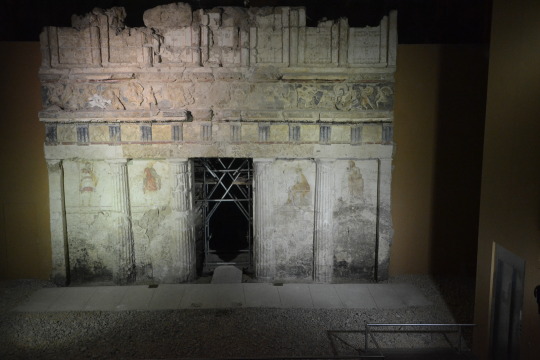
A “Macedonian Tomb” (above: Tomb of Judgement, photo mine) is a faux-shrine embedded in the ground. Elite families committed wealth to it in a huge potlatch to honor the dead. Earlier cyst tombs show the same proclivities, but without the accompanying shrine-like architecture. As early as 650 BCE at Archontiko (= ancient Pella), we find absurd amounts of wealth in burials (below: Archontiko burial goods, Pella Museum, photos mine). Same thing at Sindos, and Aigai, in roughly the same period. Also in a few places in Upper Macedonia, in the Archaic Age: Aiani, Achlada, Trebenište, etc.. This is just the tip of the iceberg. If Greece had more money for digs, I think we’d find additional sites.
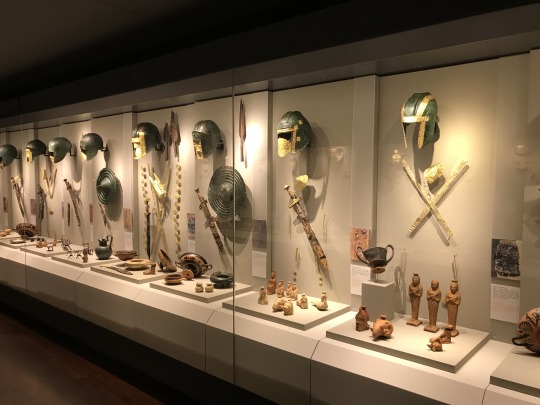

Vivi Saripanidi has some great articles (conveniently in English) about these finds: “Constructing Necropoleis in the Archaic Period,” “Vases, Funerary Practices, and Political Power in the Macedonian Kingdom During the Classical Period Before the Rise of Philip II,” and “Constructing Continuities with a Heroic Past.” They’re long, but thorough. I recommend them.
What we observe here are “Princely Burials” across lingo-ethnic boundaries that reflect a larger, shared regional culture. But one big difference between elite tombs in Macedonia and Thrace is the presence of a BODY, and whether the tomb was new or repurposed.
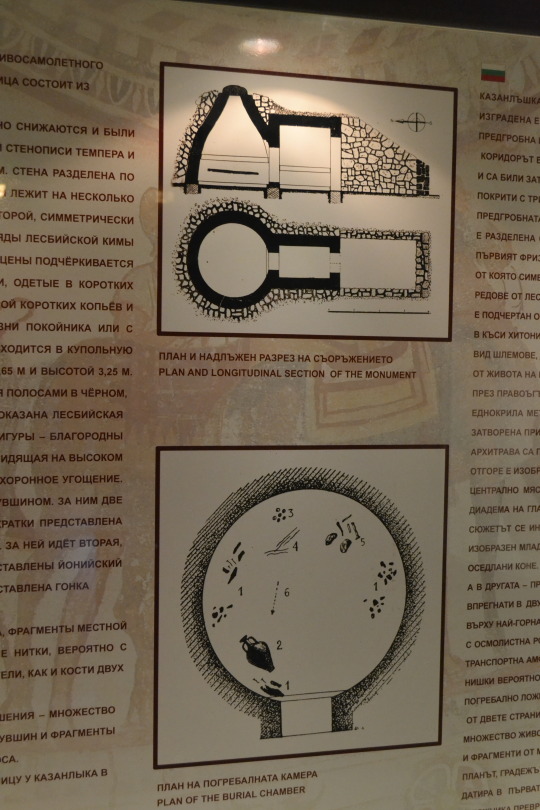

In Thrace, at least royal tombs are repurposed shrines (above: diagram and model of repurposed shrine-tombs). Macedonian Tombs were new construction meant to look like a shrine (faux-fronts, etc.). Also, Thracian kings’ bodies weren’t buried in their "tombs." Following the Dionysic/ Orphaic cult, the bodies were cut up into seven pieces and buried in unmarked spots. Ergo, their tombs are cenotaphs (below: Kosmatka Tomb/Tomb of Seuthes III, photos mine).

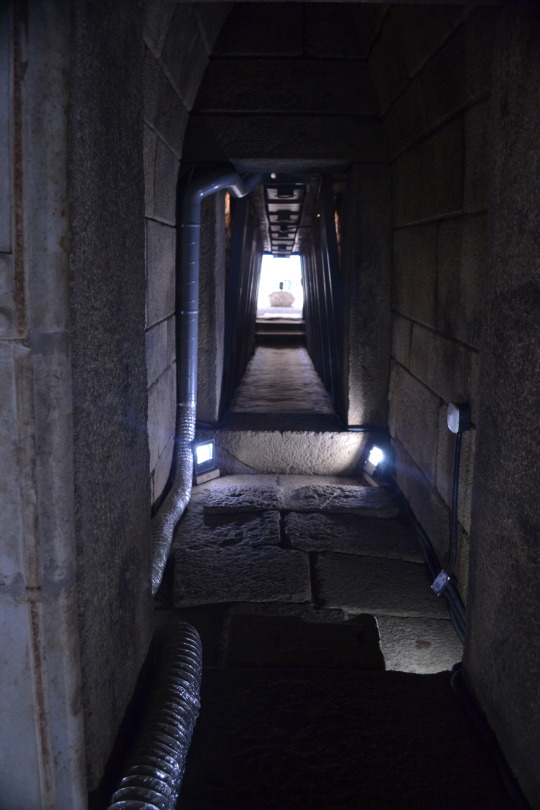
What they shared was putting absurd amounts of wealth into the ground in the way of grave goods, including some common/shared items such as armor, golden crowns, jewelry for women, etc. All this in place of community-reflective temples, as seen in the South. (Below: grave goods from Seuthes’ Tomb; grave goods from Royal Tomb II at Vergina, for comparison).



So, if some things are shared, others (connected to beliefs about the afterlife) are distinct, such as the repurposed shrine vs. new construction built like a shine, and the presence or absence of a body (below: tomb ceiling décor depicting Thracian deity Zalmoxis).

Aside from graves, we also find differences between highlands and lowlands in the roles of at least elite women. The highlands were tough areas to live, where herding (and raiding) dominated, and what agriculture there was required “all hands on deck” for survival. While that isn’t necessary for women to enjoy higher status (just look at Minoan Crete, Etruria, and even Egypt), it may have contributed to it in these circumstances.
Illyrian women fought. And not just with bows on horseback as Scythian women did. If we can believe Polyaenus, Philip’s daughter Kyanne (daughter of his Illyrian wife Audata) opposed an Illyrian queen on foot with spears—and won. Philip’s mother Eurydike involved herself in politics to keep her sons alive, but perhaps also as a result of cultural assumption: her mother was royal Lynkestian but her father was (perhaps) Illyrian. Epirote Olympias came to Pella expecting a certain amount of political influence that she, apparently, wasn’t given until Philip died. Alexander later observed that his mother had wisely traded places with Kleopatra, his sister, to rule in Epiros, because the Macedonians would never accept rule by a woman (implying the Epirotes would).
I’ve noted before that the political structure in northern Greece was more of a continuum: Thessaly had an oligarchic tetrarchy of four main clans, expunged by Jason in favor of tyranny, then restored by Philip. Epiros was ruled by a council who chose the “king” from the Aiakid clan until Alexandros I, Olympias’s brother, established a real monarchy. Last, we have Macedon, a true monarchy (apparently) from the beginning, but also centered on a clan (Argeads), with agreement/support from the elite Hetairoi class of kingmakers. Upper Macedonian cantons (formerly kingdoms) had similar clan rule, especially Lynkestis, Elimeia, and Orestis. Alas, we don’t know enough to say how absolute their monarchies were before Philip II absorbed them as new Macedonian districts, demoting their basileis (kings/princes) to mere governors.
I think continued highland resistance to that absorption is too often overlooked/minimized in modern histories of Philip’s reign, excepting a few like Ed Anson’s. In Dancing with the Lion: Rise, I touch on the possibility of highland rebellion bubbling up late in Philip’s reign but can’t say more without spoilers for the novel.
In antiquity, Thessaly was always considered Greek, as was (mostly) Epiros. But Macedonia’s Greek bona-fides were not universally accepted, resulting in the tale of Alexandros I’s entry into the Olympics—almost surely a fiction with no historical basis, fed to Herodotos after the Persian Wars. The tale’s goal, however, was to establish the Greekness of the ruling family, not of the Macedonian people, who were still considered barbaroi into the late Classical period. Recent linguistic studies suggest they did, indeed, speak a form of northern Greek, but the fact they were regarded as barbaroi in the ancient world is, I think instructive, even if not necessarily accurate.
It tells us they were different enough to be counted “not Greek” by some southern Greek poleis and politicians such as Demosthenes. Much of that was certainly opportunistic. But not all. The bias suggests Macedonian culture had enough overflow from their northern neighbors to appear sufficiently alien. Few Greek writers suggested the Thessalians or Epirotes weren’t Greek, but nobody argued the Thracians, Paiones, or Illyrians were. Macedonia occupied a liminal status.
We need to stop seeing these areas with hard borders and, instead, recognize permeable boundaries with the expected cultural overflow: out and in. Contra a lot of messaging in the late 1800s and early/mid-1900s, lifted from ancient narratives (and still visible today in ultra-national Greek narratives), the ancient Greeks did not go out to “civilize” their Eastern “Oriental” (and northern barbaroi) neighbors, exporting True Culture and Philosophy. (For more on these views, see my earlier post on “Alexander suffering from Conqueror’s Disease.”)
In fact, Greeks of the Late Iron Age (LIA)/Archaic Age absorbed a great deal of culture and ideas from those very “Oriental barbarians,” such as Lydia and Assyria. In art history, the LIA/Early Archaic Era is referred to as the “Orientalizing Period,” but it’s not just art. Take Greek medicine. It’s essentially Mesopotamian medicine with their religion buffed off. Greek philosophy developed on the islands along the Asia Minor coast, where Greeks regularly interacted with Lydians, Phoenicians, and eventually Persians; and also in Sicily and Southern Italy, where they were talking to Carthaginians and native Italic peoples, including Etruscans. Egypt also had an influence.
Philosophy and other cultural advances didn’t develop in the Greek heartland. The Greek COLONIES were the happenin’ places in the LIA/Archaic Era. Here we find the all-important ebb and flow of ideas with non-Greek peoples.
Artistic styles, foodstuffs, technology, even ideas and myths…all were shared (intentionally or not) via TRADE—especially at important emporia. Among the most significant of these LIA emporia was Methone, a Greek foundation on the Macedonian coast off the Thermaic Gulf (see map below). It provided contact between Phoenician/Euboian-Greek traders and the inland peoples, including what would have been the early Macedonian kingdom. Perhaps it was those very trade contacts that helped the Argeads expand their rule in the lowlands at the expense of Bottiaians, Almopes, Paionians, et al., who they ran out in order to subsume their lands.
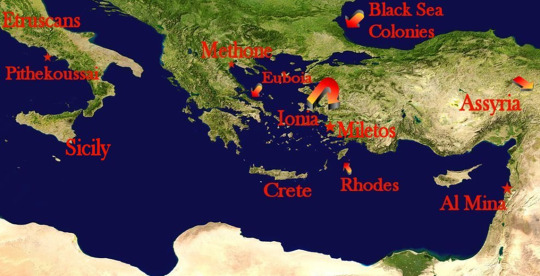
My main point is that the northern Greek mainland/southern Balkans were neither isolated nor culturally stunted. Not when you look at all that gold and other fine craftwork coming out of the ground in Archaic burials in the region. We’ve simply got to rethink prior notions of “primitive” peoples and cultures up there—notions based on southern Greek narratives that were both political and culturally hidebound, but that have, for too long, been taken as gospel truth.
Ancient Macedon did not “rise” with Philip II and Alexander the Great. If anything, the 40 years between the murder of Archelaos (399) and the start of Philip’s reign (359/8) represents a 2-3 generation eclipse. Alexandros I, Perdikkas II, and Archelaos were extremely capable kings. Philip represented a return to that savvy rule.
(If you can read German, let me highly recommend Sabine Müller’s, Perdikkas II and Die Argeaden; she also has one on Alexander, but those two talk about earlier periods, and especially her take on Perdikkas shows how clever he was. For those who can’t read German, the Lexicon of Argead Macedonia’s entry on Perdikkas is a boiled-down summary, by Sabine, of the main points in her book.)
Anyway…I got away a bit from Thracian-Macedonian cultural parallels, but I needed to mount my soapbox about the cultural vitality of pre-Philip Macedonia, some of which came from Greek cultural imports, but also from Thrace, Illyria, etc.
Ancient Macedonia was a crossroads. It would continue to be so into Roman imperial, Byzantine, and later periods with the arrival of subsequent populations (Gauls, Romans, Slavs, etc.) into the region.
That fruit salad with Cool Whip, or Jello and marshmallows, or chopped up veggies and mayo, that populate many a family reunion or church potluck spread? One name for it is a “Macedonian Salad”—but not because it’s from Macedonia. It’s called that because it’s made up of many [very different] things. Also, because French macedoine means cut-up vegetables, but the reference to Macedonia as a cultural mishmash is embedded in that.
---------------
* I’ve seen this personally between my first trip to Greece in 1997, and the new modern highway. Instead of winding around mountains, the A2 just blasts through them with tunnels. The A1 (from Thessaloniki to Athens) was there in ’97, and parts of the A2 east, but the new highway west through the Pindus makes a huge difference. It takes less than half the time now to drive from the area around Thessaloniki/Pella out to Ioannina (near ancient Dodona) in Epiros. Having seen the landscape, I can imagine the difficulties of such a trip in antiquity with unpaved roads (albeit perhaps at least graded). Taking carts over those hills would be daunting. See images below.

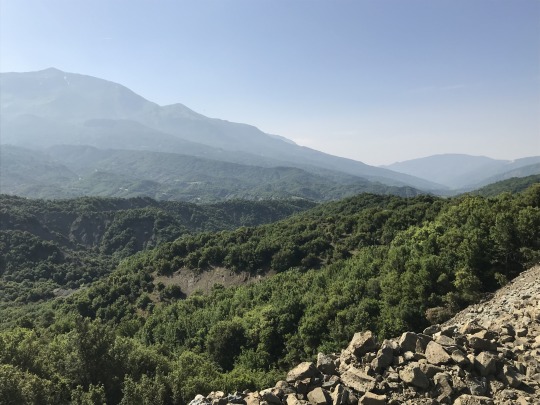
#asks#ancient Macedonia#ancient Thrace#ancient Epiros#ancient Thessaly#Argead Macedonia#pre-Philip Macedonia#Late Iron Age Greece#Archaic Age Greece#Thracian tombs#Macedonian tombs#Classics#tagamemnon#Alexander the Great#Philip II of Macedon#Philip of Macedon#women in ancient Macedonia#ancient Illyria#women in Illyria#Macedonian-Thracian similarities#religion in ancient Thrace#religion in ancient Macedonia
13 notes
·
View notes
Photo
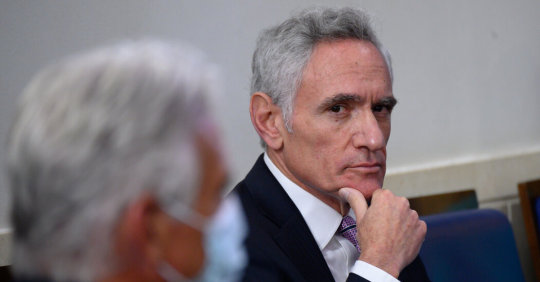
New Post has been published on https://techcrunchapp.com/live-covid-19-updates-the-latest-globally/
Live Covid-19 Updates: The Latest Globally

Here’s what you need to know:


Dr. Scott W. Altas, an adviser to President Trump.Credit…Erin Scott for The New York Times
As the coronavirus pandemic erupted this spring, two professors at Stanford University — Dr. Jay Bhattacharya and Dr. Scott W. Altas — bonded over a shared concern that lockdowns were creating economic and societal devastation.
Now Dr. Atlas is President Trump’s science adviser, a powerful force inside the White House. And Dr. Bhattacharya is one of three authors of the so-called Great Barrington Declaration, a scientific treatise that calls for allowing the coronavirus to spread in order to achieve “herd immunity” — the point at which enough people have been infected to stall transmission of the pathogen. The Centers for Disease Control and Prevention and leading experts have recently concluded, using different scientific methods, that as many as 90 percent of Americans are still vulnerable to infection.
While Dr. Atlas and administration officials have denied advocating the herd immunity approach, they have praised the ideas in the declaration. The message is aligned with Mr. Trump’s vocal opposition to lockdowns on the campaign trail, even as the country grapples with renewed surges of the virus.
The central proposition, supported by some 40,000 signatories, is that to contain the coronavirus, people “who are not vulnerable should immediately be allowed to resume life as normal” while those at high risk are protected from infection.
Under that scenario, younger Americans should return to workplaces, schools, shops and restaurants, while older Americans would remain cloistered from the virus as it spreads, recipients of such services as grocery deliveries and medical care.
It argues that eventually so many younger Americans will have been exposed, and presumably will have developed some immunity, that the virus will not be able to maintain its hold on the communities.
The manifesto does not contain details on how the strategy would work in practice, nor do its authors have expertise in implementing public health programs. Dr. Anthony S. Fauci, the government’s top infectious disease expert, dismissed the declaration as unscientific, dangerous and “total nonsense,” as well as unethical, particularly for multigenerational families and communities of color.
The idea has alarmed and angered other public health researchers. On Wednesday, about 80 published a manifesto of their own, the John Snow Memorandum (named after a legendary epidemiologist), saying that this approach would endanger one-third of the U.S. population who have conditions that put them at high risk from severe Covid-19, and result in perhaps a half-million deaths.
“I think it’s wrong, I think it’s unsafe, I think it invites people to act in ways that have the potential to do an enormous amount of harm,” said Dr. Rochelle Walensky, an infectious disease expert at Harvard University and one of the signatories to the Snow memo. “You don’t roll out disease — you roll out vaccination.”

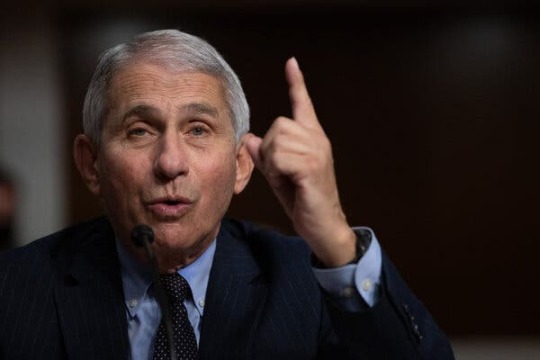
Dr. Anthony Fauci, director of National Institute of Allergy and Infectious Diseases.Credit…Pool photo by Graeme Jennings
President Trump attacked Dr. Anthony S. Fauci, the government’s top infectious disease expert, in a conference call on Monday with campaign aides, calling the doctor a “disaster” and saying, “People are tired of hearing Fauci and these idiots, all these idiots who got it wrong.”
He continued his criticism of Dr. Fauci, the overwhelmingly popular director of the National Institute of Allergy and Infectious Diseases, after landing in Arizona for the first of two scheduled rallies in the state, which is experiencing a rise in coronavirus cases.
Speaking to reporters after deplaning Air Force One, Mr. Trump called Dr. Fauci “a very nice man” but complained that he “loves being on television” and has made “a lot of bad calls.” Asked why he didn’t fire Dr. Fauci, Mr. Trump said, “He’s been there for about 350 years. I don’t want to hurt him.”
Dr.Tony Fauci says we don’t allow him to do television, and yet I saw him last night on @60Minutes, and he seems to get more airtime than anybody since the late, great, Bob Hope. All I ask of Tony is that he make better decisions. He said “no masks & let China in”. Also, Bad arm!
— Donald J. Trump (@realDonaldTrump) October 19, 2020
At a campaign rally on Monday in Arizona, where polls show that the president is trailing Mr. Biden, Mr. Trump also faulted the news media for excessive coverage of the coronavirus.
“They’re getting tired of the pandemic, aren’t they?” Mr. Trump said in Prescott, in central Arizona. “You turn on CNN. That’s all they cover. Covid, Covid, pandemic, Covid, Covid.”
The attack on Dr. Fauci comes as the United States has seen more coronavirus cases — over 8 million — and more deaths — nearly 220,000 — than any other nation in the world. The president’s advisers have tried to get him to lay off the infectious diseases specialist, who remains popular.
Dr. Fauci pushed back against complaints that he had flip-flopped over the use of masks, saying that admitting a mistake after examining further data shows honesty.
The conflict began Sunday night on the CBS News program “60 Minutes,” when Dr. Fauci said it was “absolutely” no surprise that President Trump got sick with the coronavirus, given his lax attitude toward social distancing guidance.
“I was worried that he was going to get sick when I saw him in a completely precarious situation: crowded, no separation between people and almost nobody wearing a mask,” Dr. Fauci said in the CBS interview. He was referring to an event at the White House in September to announce the nomination of Amy Coney Barrett for the Supreme Court.
“When I saw that on TV, I said, ‘Oh, my goodness, nothing good can come out of that — that’s got to be a problem,’” Dr. Fauci said. “Sure enough, it turned out to be a super-spreader event.”
Numerous people who attended the event later tested positive for the coronavirus, including the president.
Dr. Fauci, who has often been at odds with the president, sharpened his stance against an ad run by Mr. Trump’s re-election campaign that appeared to show the doctor praising the president’s handling of the coronavirus. Dr. Fauci said his words were taken out of context, and that their use in the ad was inappropriate because he never endorses candidates.
“I got really ticked off,” he said.
Mr. Trump’s attacks on Dr. Fauci led Senator Lamar Alexander of Tennessee to become the latest Republican to distance himself from the president. “Dr. Fauci is one of our country’s most distinguished public servants,” said Mr. Alexander, who is retiring this year. “He has served six presidents, starting with Ronald Reagan. If more Americans paid attention to his advice, we’d have fewer cases of Covid-19, and it would be safer to go back to school and back to work and out to eat.”
The National Academy of Medicine honored Dr. Fauci on Monday with the academy’s first Presidential Citation for Exemplary Leadership, citing his “distinguished service as a trusted adviser to six U.S. presidents during public health crises” and “steady leadership during the Covid-19 pandemic.”
In his acceptance speech, Dr. Fauci said that to inspire public trust and confidence in vaccines, people needed to hear consistent messages from the government, not conflicting ones.
New Jersey Gov. Phil Murphy is advising residents against non-essential out-of-state travel.Credit…Noah K. Murray/Associated Press
Coronavirus cases in New Jersey, an early epicenter of the pandemic, are on the rise again, doubling over the last month to an average of more than 900 new positive tests a day, a worrisome reversal of fortune for a state that had driven transmission rates to some of the nation’s lowest levels.
After an outbreak several weeks ago in a heavily Orthodox Jewish town near the Jersey Shore, cases are now rising in counties across the state, driven, officials say, by indoor gatherings.
The state’s health commissioner has said there are signs of “widespread community spread” for the first time since New Jersey successfully slowed the spread of a virus that has claimed the lives of more than 16,000 residents. A small, densely packed state, New Jersey has the highest virus fatality rate in the country.
Gov. Philip D. Murphy said Monday that residents should refrain from all but necessary out-of-state travel.
“The numbers are up,” Mr. Murphy said. “They’re up — up and down the state.”
Under a quarantine policy adopted by New Jersey, New York and Connecticut, New Jersey now exceeds the threshold — an average of 10 cases for every 100,000 residents for seven days — used to determine which states should be included in the travel advisory. Thirty-eight other states are on the list.
The uptick comes as other parts of the Northeast and states across the country are confronting similar surges of infections and hospitalizations as the pandemic stretches into its eighth month, with a death toll that now exceeds 219,000, according to a New York Times database.
Mr. Murphy, who has been conservative in allowing the state to reopen, said he would consider targeted shutdowns to curb the spread, as Connecticut and New York have done, but he suggested that would not cure the problem.


Ireland will increase coronavirus restrictions in response to a new surge of infections.Credit…Paul Faith/Agence France-Presse — Getty Images
Countries across Europe announced new restrictions on Monday in an effort to halt a strong second wave of the virus, as the global tally of cases passed 40 million. Cases have been detected in nearly every country around the world, and at least 1.1 million people have died.
Officials are desperate to avoid a second economically damaging blanket lockdown, and are instead seeking to tighten restrictions in a more precise fashion. Here’s the latest.
Ireland will be imposing its highest level of restrictions starting on Wednesday night, Prime Minister Michael Martin announced on Monday. Nonessential businesses will be mandated to close, restaurants and pubs will be limited to takeout, and people will not be allowed to travel more than five kilometers (three miles) from their homes. Schools and construction sites will remain open, however, the public broadcaster RTE reported. The restrictions, which will remain in effect for six weeks, come after the country set new daily case records four times in the past week. “If we pull together over the next six weeks we will be able to celebrate Christmas in a meaningful way,” Mr. Martin said.
In Spain, the region of Navarre announced on Monday the country’s most drastic regional measures yet to contain the second wave. As of Thursday, Navarre will stop its residents from leaving their region except for work or emergency reasons. It will also close for 15 days its bars and restaurants, and force all shops, sports venues and other establishments to close by 9 p.m. The measures come after Navarre reported an average of 945 cases per 100,000 inhabitants over the past 14 days, three times the national average.
Austria, which reported 1,121 daily cases of the virus on Monday, announced new limits on the number of people who could meet privately starting Friday: six indoors and 12 outdoors. The country has reported nearly 10,000 cases in the past week, more than at any time in March, when the government imposed a nationwide lockdown. The restrictions were lifted over the summer as numbers dropped and the country sought to attract tourists, an important source of income for the alpine nation.
In Italy, Prime Minister Giuseppe Conte announced that mayors will have the power to close streets or squares where people tend to gather after 9 p.m., while restaurants, bars and pubs will be allowed to serve seated customers — up to six per table — until midnight. Drinking outside of restaurants or bars will be permitted only until 6 p.m., and gaming and betting halls will close at 9 p.m. Italy has so far fared better than its European counterparts, but infections have been rising in recent weeks, with a record 11,705 new cases reported on Sunday.
France imposed a nightly curfew in nine cities, including Paris, over the weekend, and asked people throughout the country to limit gatherings to six people to halt an alarming spike in cases. On Monday, the office of President Emmanuel Macron announced that the first lady, Brigitte Macron, was in quarantine after being exposed to someone who had tested positive. Ms. Macron has not shown any symptoms, the office said in a statement.
Slovenia’s government declared a 30-day state of emergency after cases of the virus more than doubled in the past week, Reuters reported. The government will ban movement between regions that have been most affected by the pandemic and introduce a nightly curfew beginning at 9 p.m. starting Monday, Interior Minister Ales Hojs said at a news conference. Mr. Hojs said that all public and religious events would be banned, and that the number of people allowed to gather would be reduced to six from 10. Slovenia has reported 4,845 coronavirus cases in the past week, a spike from 2,255 cases the week before.
Britain has reported an average of nearly 17,000 new cases a day over the past week, according to a New York Times database, with almost a thousand new daily cases in Wales.
Wales will enter a national lockdown starting Friday night, the country’s first minister, Mark Drakeford, announced on Monday. The “firebreak” lockdown, which will last until Nov. 9, will require residents to remain at home and force pubs, restaurants and nonessential shops to close. Mr. Drakeford said “there are no easy choices in front of us” and called the lockdown “our best chance of regaining control of the virus” and avoiding strain on the National Health Service.
About 2.3 million of the 3.1 million people in Wales were already living under local lockdowns. and the country has effectively shut its borders to travel from other parts of Britain.
And officials in Bucharest, the Romanian capital, announced that schools, theaters and indoor dining will be closed for at least two weeks, and that masks will become mandatory in all public spaces. The city reported on Sunday that the virus rate over the previous 14 days had exceeded three cases per 1,000 residents, a red line for imposing stricter rules. After keeping the virus largely in check during the initial months of the pandemic, Romania has seen cases triple over the past month. While the schools will switch to online learning, there is deep concern that many students lack tablets and other necessary materials.
A patient enrolled in Pfizer’s vaccine clinical trial at the University of Maryland School of Medicine in Baltimore.Credit…University of Maryland School of Medicine, via Associated Press
As the Trump administration has pressed publicly for top-speed development and approval of a coronavirus vaccine, while researchers and public health experts warned of the dangers of rushing the process, the idea of getting the vaccine as soon as it is available is losing appeal for many Americans, especially Black Americans, recent surveys show.
In a STAT-Harris poll of about 2,000 people, conducted Oct. 7-10 and published Monday, 58 percent of respondents said they would get vaccinated right away, down from 69 percent who said the same in August.
The decline was twice as steep among Black respondents: just 43 percent said in October that they would get the vaccine, down from 65 percent in August.
Rob Jekielek, managing director of The Harris Poll, which has been asking the question throughout the pandemic, said two news events appeared to have played a role in the falloff: the back-and-forth between the Food and Drug Administration and the White House over vaccine guidelines, and President Trump’s Covid-19 diagnosis and treatment.
“The politicization of the process is having a huge negative effect, especially with Black Americans,” he said in an interview.
Pew Research Center polls that framed a question on the issue somewhat differently also found growing hesitation over a vaccine: About 51 percent of adult respondents said in September that they would definitely or probably get a vaccine if one were available, down from 72 percent who said the same in May. The surveys included more than 10,000 respondents and had a margin of sampling error of plus or minus 1.6 percentage points.
“It’s pretty clear the public is concerned about the pace of the vaccine approval process and have outstanding questions about safety,” said Alec Tyson, associate director of Pew Research.
Polls conducted for CNN by the market research firm SSRS asked, “If a vaccine to prevent coronavirus infection were widely available at a low cost, would you, personally, try to get that vaccine, or not?” Sixty-six percent of respondents said yes in May; just 51 percent did in October. The polls’ margin of error was plus or minus 3.3 percentage points.
And in an ABC News/Ipsos poll last month, 64 percent of respondents said they would take a “safe and effective coronavirus vaccine,” down from 74 percent in May. Those polls had a margin of error of 4.9 points.
Claudia Balderas, 51, attended the first in-person Mass in almost four months at Saint Bartholomew Roman Catholic Church in the Queens in early July. Catholic leaders are upset with restrictions by Gov. Cuomo again limiting attendance in areas where coronavirus is surging.Credit…Jessie Wardarski/Associated Press
Over the last two weeks, Catholic leaders in New York have voiced their deep disapproval with Gov. Andrew M. Cuomo over his decision to sharply limit attendance at houses of worship in areas that are seeing a surge of new coronavirus cases.
The governor’s decision was largely aimed at trying to rein in congregants in Orthodox Jewish synagogues in New York City and in Orange and Rockland Counties, where some members have flouted social distancing and mask regulations.
But it also affected other houses of worship, including about two dozen parishes in the diocese covering Queens and Brooklyn, where Catholic officials have sued Mr. Cuomo in federal court, insisting that they have been abiding by the rules and should not be punished.
“We’ve gone above and beyond what they have recommended and mandated,” said Dennis Poust, a spokesman for the New York State Catholic Conference. “So if there’s an animus, it’s coming from his end, not our end.”
Leaders of the Diocese of Brooklyn and the Archdiocese of New York have also criticized the restrictions, which have closed nonessential businesses and limited occupancy in so-called red zones to 25 percent of building capacity or a mere 10 people, whichever is lower.
“To have all of the steps we’ve taken be ignored, and to face the prospect of indefinite unreasonable restrictions placed upon our churches is just not fair!” Cardinal Timothy M. Dolan wrote in a blog post last week. “Why are churches being singled out? Why especially are those houses of worship that have been exemplary, strict and successful in heeding all warnings, being shut down again?”
A public school in Brooklyn this month. Mayor Bill de Blasio of New York planned to reimpose restrictions on schools in neighborhoods where coronavirus cases were on the rise.Credit…Angela Weiss/Agence France-Presse — Getty Images
For months, as New York City struggled to start part-time, in-person classes, fear grew that its 1,800 public schools would become vectors of coronavirus infection.
But nearly three weeks into the in-person school year, early data from the city’s first effort at targeted testing has shown the opposite: a surprisingly small number of positive test results.
Out of 15,111 staff members and students tested randomly by the school system in the first week of its testing regimen, the city has gotten back results for 10,676. There were only 18 positives: 13 staff members and five students.
And when officials put mobile testing units at schools near Brooklyn and Queens neighborhoods that have had new outbreaks, only four positive cases turned up — out of more than 3,300 tests conducted since the last week of September.
New York City is facing fears of a second wave of the virus brought on by localized spikes in Brooklyn and Queens, which have required new shutdown restrictions that included the closure of more than 120 public schools as a precaution.
On Monday, Mayor Bill de Blasio said that city continued to see a “leveling off” in those areas and officials had seen “particular progress” in central Queens, the mayor said. But he did not provide data for those areas.
Across the city, the seven-day average positivity rate was at 1.62 percent, the mayor said. When he first announced an uptick in cases about three weeks ago, the positivity rate was 1.38 percent.
Shortly afterward on Monday, Gov. Andrew M. Cuomo said that data in different hot spot areas across the state where he had imposed restrictions by zones would continue to be reviewed, and that the state would “announce changes to the zones” on Wednesday. Zone sizes could be made larger or smaller, he said, adding that “we have total flexibility in these zones.”
Statewide, the daily positivity rate was 1.21 percent, he said, while the “red zones,” which have the most severe restrictions in place, had a positivity rate of 3.31 percent. Hospitalizations statewide, which have been steadily increasing in recent weeks, are 934.
But for now, at least, New York City’s sprawling system of public schools, the nation’s largest, is an unexpected bright spot as the city tries to recover from a pandemic that has killed more than 20,000 people and severely weakened its economy.
In September, New York became the first big urban district to reopen schools for in-person learning.
Roughly half of the city’s students have opted for hybrid learning, where they are in the building some days, but not others. The approach has enabled the city to keep class sizes small.
Gov. Gavin Newsom of California.Credit…Daniel Kim/The Sacramento Bee, via Associated Press
California will have its own independent panel of experts review any federally approved coronavirus vaccines before they are administered to residents, Gov. Gavin Newsom said on Monday.
“Of course we won’t take anyone’s word for it,” he said in a news briefing. He emphasized that the “second set of eyes” on potential vaccines is part of California’s broader efforts to make sure that vaccines get equitably distributed to communities that are most vulnerable.
While Mr. Newsom acknowledged that the vaccine approval process has been politicized, he said, “It doesn’t matter who the next president is, we’re going to maintain our vigilance.”
The announcement came after Gov. Andrew M. Cuomo of New York said that his state would also review vaccines approved by the federal government — although Mr. Cuomo tied the move to doubts raised when President Trump suggested that he would reject tougher F.D.A. guidelines. “Frankly, I’m not going to trust the federal government’s opinion,” Mr. Cuomo said in late September.
On Sunday, Mr. Cuomo, as head of the bipartisan National Governors Association, posed additional questions about how the Trump administration will ensure that states are able to get and distribute vaccines.
Mr. Newsom said that his state is working with the federal government on its vaccination plans, but that experts from California’s prestigious academic and health care institutions are helping to figure out expected logistical challenges. They include where to store vaccines that must be kept cold, how to notify people about when to get their second shots and how to guarantee that rural communities have access to vaccines.
Mr. Newsom cautioned against being “overly exuberant” about the prospect of widespread vaccination; he said that won’t happen until next year. “This vaccine will move at the speed of trust,” he said.
California’s new case rates have stayed relatively low, even as the state has expanded testing and gradually lifted restrictions on businesses. Still, the governor implored residents not to let their guard down as the holidays approach.
In rural Wisconsin, many restaurants will be limited to ten indoor patrons.Credit…Bing Guan/Reuters
A judge in Wisconsin, the site of the one of the worst outbreaks of a resurgent coronavirus, has upheld an executive order by Gov. Tony Evers that limits public gatherings to 25 percent of a building or room’s capacity.
“This critically important ruling will help us prevent the spread of this virus by restoring limits on public gatherings,” said the governor’s office in a statement. “This crisis is urgent. Wisconsinites, stay home.”
The ruling means in rural Wisconsin, many restaurants, taverns, and supper clubs with no maximum capacity set by local authorities will be limited to ten patrons dining-in at a time, according to the Tavern League of Wisconsin, which requested a temporary injunction on Emergency Order #3 from the circuit court judge.
The state has reported more than 22,500 new coronavirus cases in the last week, according to a New York Times database, putting Wisconsin behind only North Dakota, South Dakota and Montana in terms of new infections per capita.
The Tavern League, which sued for relief against the executive order, represents about 5,000 small businesses, according to Scott Stenger, who heads the league’s government affairs outreach. “We don’t take suing anybody lightly, let alone the governor of our state,” Mr. Stenger said. “It’s not something we’d do before.”
Mr. Stenger said the league had not been consulted ahead of time about the emergency order, and did not have an opportunity to help craft regulations that might better help eateries and bars across the rural parts of the state stay open while still taking precautions to protect their customers.
The issue is especially acute in rural areas of Wisconsin, where there are often no set capacity limits for restaurants and taverns. By default, those businesses will be limited to ten patrons.
Without economic assistance from the state, or from Congress, Mr. Stenger said that more of his members will likely go out of business.
GLOBAL ROUNDUP


Jaroslaw Kaczynski, center, at his swearing-in as deputy prime minister in Warsaw on Oct. 6. Credit…Radek Pietruszka/EPA, via Shutterstock
Poland’s deputy prime minister and de facto leader, Jaroslaw Kaczynski, is going into quarantine after learning that he had been in contact with someone infected with the coronavirus, a government spokesman said, adding that Mr. Kaczynski, who is 71, “feels well and will continue performing his duties from home.”
Mr. Kaczynski did not wear a mask when he handed out an award at a ceremony last week, and briefly took off his mask when he was sworn in as deputy prime minister on Oct. 6.
Poland largely resisted the first wave of the pandemic with an early lockdown that began in March. But after it reopened all its schools for in-person instruction in early September, case counts started climbing, and the country is now battling a major surge of infections and hospitalizations. Poland has reported 49,950 new cases in the last seven days, according to a New York Times database, and 175,766 in all, with more than 3,500 Covid-19-related deaths.
With hospital beds filling up, there is particular concern about the damage that the virus could sow in Poland, which has a relatively weak health care system and one of the lowest ratios of doctors and nurses to residents in the European Union.
To deal with the surge, the government is transforming the national stadium in Warsaw into a field hospital. The health minister, Adam Niedzielski, said on Monday that temporary Covid-19 hospitals would also be set up in other major cities, and that he was in discussions with private hospitals about making more beds available. Mr. Niedzielski warned that if the virus continued to spread at its current pace, the country could soon be facing as many as 20,000 new cases a day.
In other developments around the world:
Restrictions on nonessential travel between the United States, Canada and Mexico will be extended until Nov. 21, Chad Wolf, the acting secretary of Homeland Security, announced on Monday. “We are working closely with Mexico & Canada to identify safe criteria to ease the restrictions in the future & support our border communities,” Mr. Wolf wrote on Twitter. In the past seven days, Canada has reported 16,284 cases, which works out to 44 per 100,000 people; Mexico, 33,724 cases, or 27 per 100,000; and the U.S., 396,305 cases, or 119 per 100,000.
Officials in Melbourne, Australia, announced some easing of one of the world’s strictest lockdowns, allowing residents to travel up to 25 kilometers from their homes and up to 10 people from two households to socialize outdoors. Dan Andrews, the premier of the state of Victoria, drew a contrast between the situation there and in Britain, where there have been fewer restrictions despite a surge in cases. “Back in August and at our peak, we reported 725 daily cases. At the same time, the U.K. recorded 891,” he said in a statement. “Today, as Victoria records two new cases, the U.K. hit 16,171. And as we continue easing our restrictions, they are being forced to increase theirs.”
Twenty-five crew members aboard a livestock carrier docked at a port in Western Australia have tested positive for the coronavirus. The ship, the Al Messilah, has 52 crew members, and the authorities warned that further positive test results were possible.
Prime Minister Sanna Marin of Finland has tested negative for coronavirus, her office said on Monday. She left a European Union summit in Brussels prematurely on Friday because she had come in contact with people who later tested positive. “The prime minister will continue her self-isolation and she will be tested again on Monday,” the office said in a statement. Ms. Marin’s voluntary quarantine will end if the second test result proves negative, her office added.
South Africa’s health minister, Dr. Zwelini Mkhize, said that he and his wife, Dr. May Mkhize, had tested positive for the coronavirus and that he was optimistic that they would “fully recover.” Dr. Mkhize was tested on Saturday after showing mild symptoms, and both he and his wife are in quarantine at home. South Africa, which has recorded at least 703,000 cases of the coronavirus, has largely reopened its economy.
— Monika Pronczuk, Yan Zhuang and Monica Mark


CVS plans to hire workers ahead of expected increases in coronavirus and flu cases this fall and winter.Credit…Brian Snyder/Reuters
CVS Health announced on Monday that it planned to hire 15,000 workers to prepare for expected increases in coronavirus and flu cases in the United States during the fall and winter months.
More than 10,000 of the new roles will be full-time and part-time licensed pharmacy technicians at CVS Pharmacy locations to help administer Covid-19 tests, process prescriptions and dispense medications.
“Additional team members typically are needed every flu season,” Lisa Bisaccia, chief human resources officer of CVS Health, said in a statement. “However, we’re estimating a much greater need for trained pharmacy technicians this year given the continued presence of Covid-19 in our communities.”
The additional hires may also help the company distribute a Covid-19 vaccine when it becomes available, if federal officials permit pharmacy technicians to administer it.
In March, CVS Health announced plans to fill 50,000 jobs across the country, the “most ambitious hiring drive in the company’s history,” it said at the time. The company has more than 4,000 drive-through coronavirus testing sites across the United States.
Separately, Target said on Monday that it would pay a fourth bonus to its employees who work in stores, distribution centers and staff and employee contact centers, as the pandemic continues and the retailer’s sales have soared this year.
More than 350,000 workers will receive $200 by early November, Target said.
Sapna Maheshwari contributed reporting.


Delta Air Lines and United Airlines both said that operating revenue in the three months through September had fallen nearly 80 percent compared with last year.Credit…Charlie Riedel/Associated Press
More than a million people passed through airport checkpoints on Sunday, the first time the Transportation Security Administration has screened that many people since mid-March.
While that represents a symbolic milestone for the travel industry, U.S. airlines are still losing billions of dollars a month as they brace for much weaker demand for tickets this winter. The number of people screened by the T.S.A. on Sunday was down about 60 percent compared with the same day a year ago.
Last week, Delta Air Lines and United Airlines both said that operating revenue in the three months through September had fallen nearly 80 percent compared with last year. That period spanned much of the summer, which is typically the busiest season for airlines. Corporate travel typically sustains them in the fall, but many large businesses have been cautious about returning to normal operations and have told their employees to work from home until next July.
The steep decline in travel has forced airlines to cut to the bone, tweaking every part of the business as they hope to capitalize on what little demand remains. American Airlines and Southwest Airlines are expected to release similarly dismal third-quarter financial results this week.
0 notes
Text
Here’s What NPG Gala Honorees Have to Say About Their Portraits
https://sciencespies.com/history/heres-what-npg-gala-honorees-have-to-say-about-their-portraits/
Here’s What NPG Gala Honorees Have to Say About Their Portraits
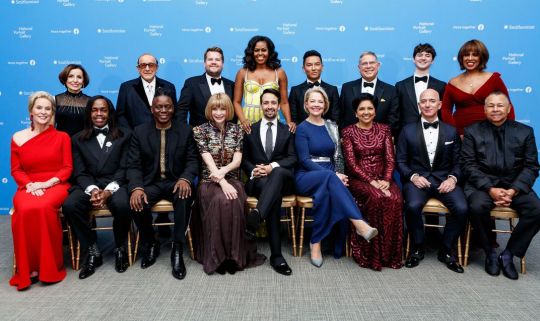
The Smithsonian’s National Portrait Gallery rolled out the red carpet for its star-studded guest list of more than 700 people for the 2019 American Portrait Gala this past week. The museum courtyard filled with heads of state, TV personalities, artists and scientists to celebrate the recipients of the “Portrait of a Nation” prize.
Honorees included scientist and Nobel Laureate Frances Arnold, tech entrepreneur and philanthropist Jeff Bezos, the music group Earth, Wind & Fire, composer and actor Lin-Manuel Miranda, business executive Indra Nooyi, and fashion journalism visionary Anna Wintour. Journalist Gayle King led the ceremony, which included speeches by Michelle Obama and late-night host James Corden.

Honorees included engineer and Nobel Laureate Frances Arnold; tech entrepreneur Jeff Bezos; the band Earth, Wind & Fire, composer Lin-Manuel Miranda, Vogue editor-in-chief Anna Wintour and business executive Indra Nooyi
(Ryan Kobane/BFA for National Portrait Gallery)
When Museum Director Kim Sajet began the gala in 2015, she emphasized the need to honor a diverse array of contemporary sitters and artists. “We ask, ‘Who has made a national impact?’” Sajet says. “We have those people who have really moved the needle in some, often multiple, ways.” The gallery has continued to host the gala biannually as a way to commemorate American icons while raising funds and putting the museum on the map. This year, the event raised more than $2 million to support an endowment for future exhibitions.
Long after the celebrities and socialites went home, six new portraits remained to commemorate the gala’s guests of honor. They are currently on display on the first floor of the gallery, and they will be added to the museum’s permanent collection.
Frances Arnold
With windswept hair and a crisp white blouse, Frances Arnold exudes regal poise. But the Nobel Laureate says it was “nerve-racking” to be photographed by Katy Grannan, an artist who captures her subjects with a degree of realism that is not always attractive. Grannan photographed Arnold at Caltech, where the chemical engineer is pioneering the use of directed evolution to make enzymes. In her words, her research seeks to “rewrite the code of life to take renewable resources and convert them into the products we need in our daily lives.” Arnold sees science as a way to do something good for the planet. “I care about this beautiful planet that we all share. This is a home that we have to leave in good shape for the next generations,” she says. Arnold was presented by France Córdova, astrophysicist and director of the National Science Foundation.
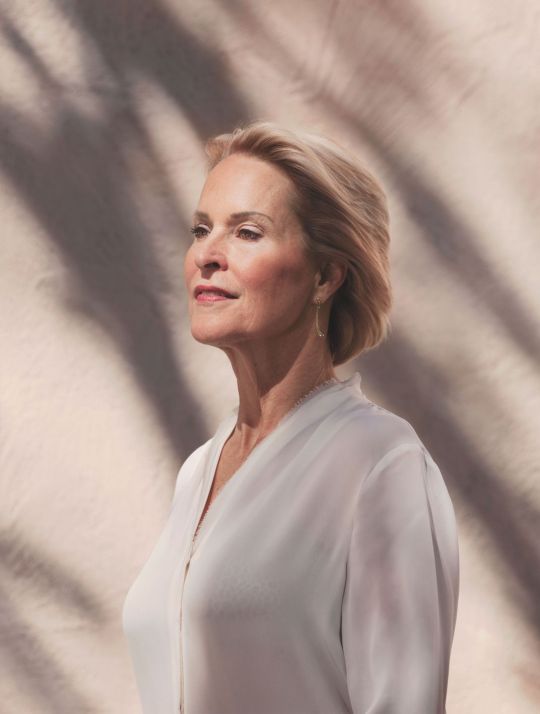
Frances Arnold by Katy Grannan, 2018
(©Katy Grannon)
Jeff Bezos
Viewers of Robert McCurdy’s larger than life rendering of Jeff Bezos may feel like they’re actually standing at the foot of the richest man alive. When asked about his impact on American culture and history, Bezos laughed and said he’d leave that question for others to answer. As the founder and CEO of Amazon, owner of the Washington Post, and head of aerospace company Blue Origin, Bezos’s influence cannot be overstated. Still, the tech mogul chose his son, Preston, to present him with his Portrait of a Nation Prize. The 19-year-old didn’t hesitate to accept the opportunity to support his father, saying he is “so proud of everything he’s done.” Many of the achievements his father is being honored for have been in the works for a lifetime. Referring to Blue Origin’s research on space exploration, the senior Bezos says, “There are things in my heart that I’ve been working on, in some sense, since I was a little kid, because I’ve been thinking about them since I was five years old.”

Untitled, Jeffrey P. Bezos by Robert McCurdy, 2019
(NPG)
Earth, Wind & Fire (and Clive Davis)
Bruce Talamon’s 1978 image of Earth, White & Fire enshrines the spunk, glitz and power of the iconic band. Philip Bailey, Verdine White and Ralph Johnson accepted the award, which also honored Maurice White posthumously. “Our contribution to American culture by way of our music will live on forever in this great legacy of portraits that you see here in the gallery,” says Philip Bailey. The trio continues to perform around the world, keeping alive the legacy of hit classics like “September” and “Shining Star.” Clive Davis, who launched the band to stardom when he signed them to Columbia Records in 1972, presented the award. The trio wrapped up the awards ceremony with a performance of a few of their hits. “To see them today in person, they’re as electrifying as they were when they first began,” Davis says.
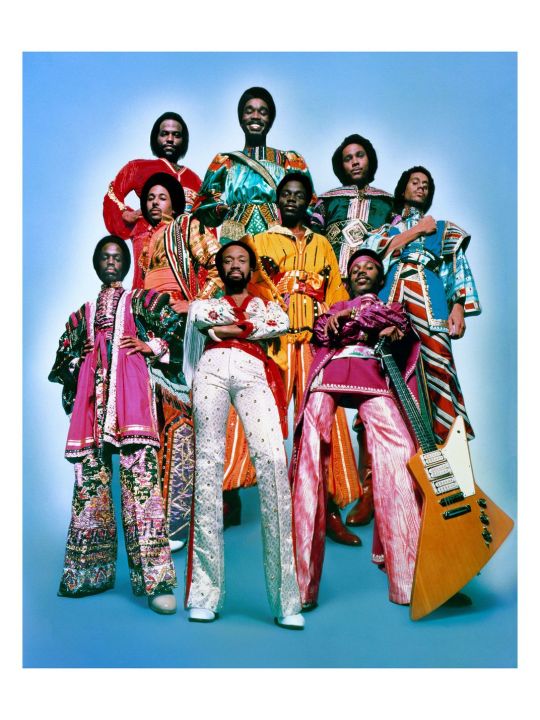
Earth, Wind & Fire by Bruce W. Talamon, 1978
(© 2018 Bruce W. Talamon, all rights reserved)
Lin-Manuel Miranda
While posing for photographer Mark Seliger’s at the edge of roof four-stories high, Lin-Manuel Miranda was thinking about how Seliger’s image of him may hang among the American greats for years. He did everything in his power to look less frightened than he felt. The composer, lyricist and actor of musical sensation Hamilton, draws on one of the play’s central themes when reflecting on his portrait. “You don’t get to choose how history remembers you—it’s decided by those who survive you,” he says. His portrait provides a mere snapshot of his life and accomplishments, reminding him of how much remains to be popularly known of figures like Alexander Hamilton. And by diversifying the portraits inducted into the Gallery, this record of American history becomes more nuanced. “In the past few years, we’ve seen a more diverse crop of inductees, and I think that brings more excitement to the National Portrait Gallery,” Miranda says. “When we tell different types of stories, a fuller version of America gets reflected back.” Miranda was presented by former First Lady Michelle Obama, who was an early supporter of Hamilton and Miranda’s “dream presenter.”
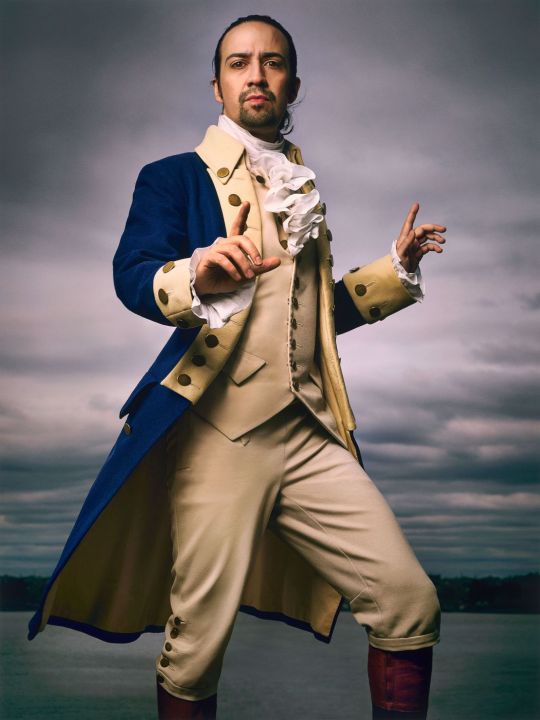
Lin-Manuel Miranda by Mark Seliger, 2016
(© 2016, Mark Seliger)
Indra Nooyi
When Indra Nooyi got a call from the Portrait Gallery, she thought it might be a joke. The former CEO of Pepsi-Co has certainly made waves in the business world, but she never expected to see herself memorialized in a national museum. “To be an immigrant, a South Asian immigrant, an immigrant of color, a woman, and to be included in the Portrait Gallery really says that we are in a country where people look for people who make a positive impact and celebrate them.” Nooyi chose artist Jon R. Friedman to paint her portrait, and she says, “He brought me to life in incredible ways.” Her heritage and life’s work are represented by family photos, a PepsiCo business report and a Yale School of Management hat in the background. Nooyi was presented by Alberto Ibargüen, president and CEO of the John S. and James L. Knight Foundation.
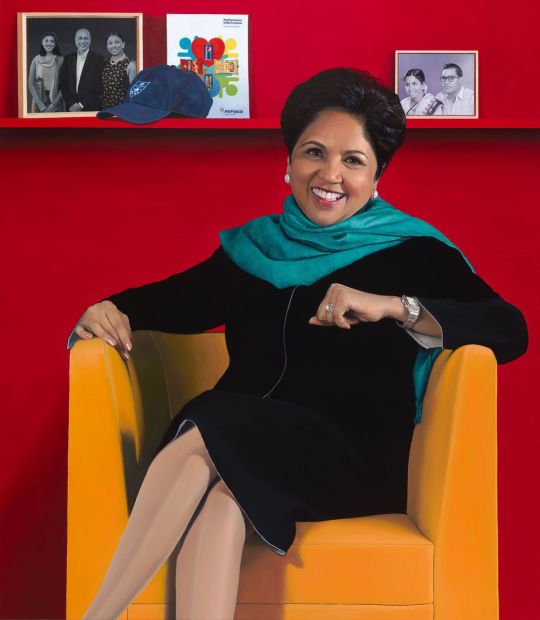
Indra Nooyi by Jon R. Friedman, 2019
(NPG)
Anna Wintour’s portrait is not available for publication. The longstanding editor-in-chief of Vogue was photographed in her home by Annie Leibovitz. Wintour was presented by James Corden, actor, comedian and host of The Late Late Show.
The portraits are on view in the exhibition “Recent Acquisitions” through August 30, 2020 at the Smithsonian’s National Portrait Gallery.
#History
0 notes
Note
This may be a weird question, but what was Madison's relationship/thoughts on Washington?
The strongest argument for ratifying the constitution was the approval of George Washington, signaled by his presence at the convention and his support afterward. James Madison understood that Washington was the “heavy weight champion” (Brookhiser 7) of American public life, which is why he stuck to him from the planned stages of the convention through the early days of Washington’s presidency.
The revolutionary war thrust Madison together with George Washington who was the commander in cheif for the continental army at the time. Washington was nineteen years Madison’s senior and at first he could only serve him from afar as an admirer. In 1778, the Governor’s council, noting “the great fatigues” to which Washington was exposed, decided to send him “a stock of good rum, wine [and] sugar.” Two years later, a congressional committee Madison sat on sent Washington a dozen boxes of lemons and two casks of wine. “As for our illustrious general,” Madison wrote, “the rich Madeira should flow in copious streams.”
The two finally met in person in the winter of 1781-1782 (Brookhiser 31), when the commander in chief came to Philadelphia to plan the war’s end with congress. In Madison, Washington found “devotion, hard work and (in time) good advice. The younger man provided a gift which he revealed man years later in a discussion of Washington, “The story so often repeated of [Washington] never laughing,” Madison told, “is wholly untrue; no man seemed to enjoy gay conversation, through he took little part in it himself. He was particularly pleased with the jokes, good humor and hilarity of his companions.”
“Madison’s filial admiration for Washington was what almost any revolutionary, especially of his generation, would feel. But Madison would have more opportunities than most to serve his idol”
In November 1784, Washington went to Richmond to lobby the assembly for improvements to the Potomac. A bill was also introduced by Joseph Jones but after Jones left the legislature to take a seat on the Governor’s council, Madison took over management of a bill supported by Washington. Washington supplied the prestige and persuasion while Madison got the legislative work done. “Your own judgment in this business will be the best guide,” Washington acknowledged in a letter to his “partner”. As a result, the Potomac River Company was chartered in the spring of 1785, with Washington as president.
Madison’s first visit to Mount Vernon followed in the fall (Brookhiser 45). After he left, Washington extended an open-ended invitation to further collaboration: “if anything should occur that is interesting, and you leisure will permit it, I should be glad to hear from you on the subject.” He sighed his letters with “affectionately. At Madison’s urging the assembly had given Washington fifty shares in the Potomac River Comany, valued at more than $22,000. Madison drafted a letter for him, asking the assembly to give the profits of his shares to charity. This would not be the last time Madison would be the General’s “ghost-writer”.
As one of Virginia’s representatives in Annapolis, Madison had called for a convention in Philadelphia. As a member of Virginia Assembly in Richmond, he wrote a bill to approve the recommendation he had made. With Madison’s input, the assembly picked a slate for Philadelphia that included Edmund Randolph, Patrick Henry, George Mason, Madison himself and George Washington headed this list. Henry refused and Washington did not want to go either. Madison spent all that winter and spring “wooing” him. When he wrote Washington in December 1786 to tell him that he was on the list of delegates, he underplayed his own role in putting Washington on there. “It was the opinion of every judicious friend whom I consulted that you name could not be spared… In these sentiments, I own I fully concurred.” On his way back on congress in December 1787, he stopped at Mount Vernon to speak with Washington. Madison would also provide Washington with updates as to what exactly was occurring in the congress chamber.
George Washington took the oath of office in New York City on April 30th, 1789. Madison left no description of the day but he had stopped at Mount Vernon on his way back to New York in late February to help Washington write his inaugeral address. Madison wrote a more wieldy version, in six paragraphs. After Washington got the speech in the Federal Hall, Madison wrote the House’s response and Washington’s answer to the House’s response.
Whenever Washington’s abilities were questioned in the House, Madison came to the defense of him. When Washington asked Thomas Jefferson to be Secretary of State and he refused the first time, Madison was to play “matchmaker” and floated the offer back to Jefferson who finally agreed in February 1790. Despite James Madison’s disapproval with Bank Bill in February 1791, Washington had not yet during his presidency exercised his veto power. Washington talked the Bank Bill over with Madison, “listening favorably as I thought to my views,” and asked Madison to prepared a veto message.
1792, Madison’s new political party named itself the Democratic-Republicans, but Madison’s most urgent task went far beyond politics: it was to persuade George Washington to stay in office for a second term as President of the United States. In the Spring the Commander-in-Chief asked his advisor how to let the country know that he would retire at the end of his term. Madison offered his opinions on the proper time for such an announcement (mid-September) and the proper manner (an article in the newspapers), and drafted an eight-paragraph Farewell Address. But he included a plea, “Having thus, Sir, complied with your wishes…I must now gratify my own by hoping [that you will make] one more sacrifice, severe as it may be, to the desires and interests of your country.”
Washington seemed above this. Madison “cherished Washington and his own closeness to him, could not acknowledge how much closer Washington had become with his former staff [Alexander Hamilton],” (Brookhiser 110). Washington subsequently decided to stay on at the urging of others such as Alexander Hamilton and Thomas Jefferson. By 1793, Madison’s secret endorsement was for Philip Freneau. Freneau was a Princeton friend from their college days who published a newspaper openly attacking Washington and others of the rising Federalist party and sentiment. Jefferson and Madison distributed the papers.
With the Whiskey Rebellion underway, Washington called up the militia of 15,000 led by Alexander Hamilton. This passed without protest from Madison but aspects of the affair worried his nevertheless: “a standing army was necessary for enforcing laws.” Madison worried less about the attack on western Pennsylvania than an attack on public opinion by George Washington. Washington believed that the crisis had been stirred up by the Democratic Societies. Edmund Randolph wrote to Washington that a Democratic Society in South Carolina had named itself “Madisonian.” This, Washington had not liked at all. He was attempting to uphold the law, while Madison was “consorting with its enemies.” (Brookhiser 120). Washington and Madison had disagreed on many things over the past four years, but now Washington began to suspect that his old friend was growing against him.
In 1794, Aaron Burr introduced the bachelor Madison to Dolley Payne Todd whom he soon married. This courtship was encouraged by George and Martha Washington (Brookhiser 121). By April 1796, Madison began to take on Washington directly and his unhappiness showed. Despite their recent political disputes, he and Washington and still maintained somewhat of a friendship. He had supplied with his Madeira, helped with him canals and constitution-making; Washington had even blessed his marriage. Madison reminded the president that he was not a “king”, that the government had not “hereditary prerogatives and reminded him of the power of public opinion. Yet Madison admitted Washington’s “high authority” and insisted that he himself used only “decent terms” to refute it. Madison divided mind weakened his argument. Washington found it easy to reject the younger man’s opposition. He ended the relationship. Though Madison would attend a few state dinners at the presidential mansion, he and Washington exchanged no more letters, paid no more visits. Madison’s own side was unhappy with him too. They blamed him for not fighting Washington “enough”.
In his Farewell Address, Washington followed the advice Madison had given to him four years earlier about how to “set the stage.” George Washington died on December 14th and Madison moved that the assembly wear mourning throughout their session. “Death,” he said, “has robbed our country of its most distinguished ornament, and the world of one of its greatest benefactors.” Madison had never fully accepted the estrangement to Washington and stayed rather loyal till the end. In 1818, many years later when establishing the University of Virginia, one of the texts Madison added to library was Washington’s first inaugural and his Farewell Address.
87 notes
·
View notes